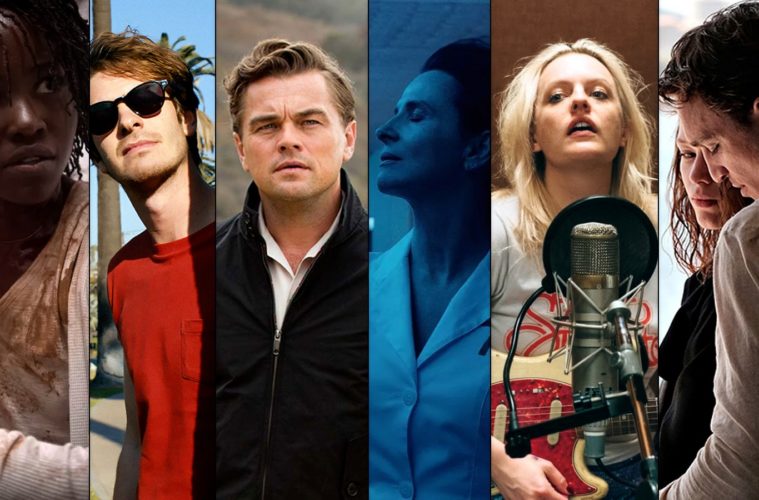As 2019 winds down, like most cinephiles, we’re looking to get our hands on the titles that may have slipped under the radar or simply gone unseen. With the proliferation of streaming options, it’s thankfully easier than ever to play catch-up for those films you missed in a theater (or never came to your town), and to assist with the process, we’re bringing you a rundown of the best titles of the year available to watch.
Curated from the Best Films of 2019 So Far list we published for the first half of the year, it also includes films we’ve enjoyed the past few months and some we’ve recently caught up with. This is far from a be-all, end-all year-end feature (that will come at the end of the year), but rather something that will hopefully be a helpful tool for readers to have a chance to seek out notable, perhaps underseen, titles from the year.
Note that we’re going by U.S. theatrical releases and the streaming services are limited solely to the territory as well. If you want to stay up-to-date with new titles being made available, check out our weekly column. In the meantime, see our rundown below, which will be updated as new titles hit streaming services, so make sure to bookmark.
3 Faces (Jafar Panahi)
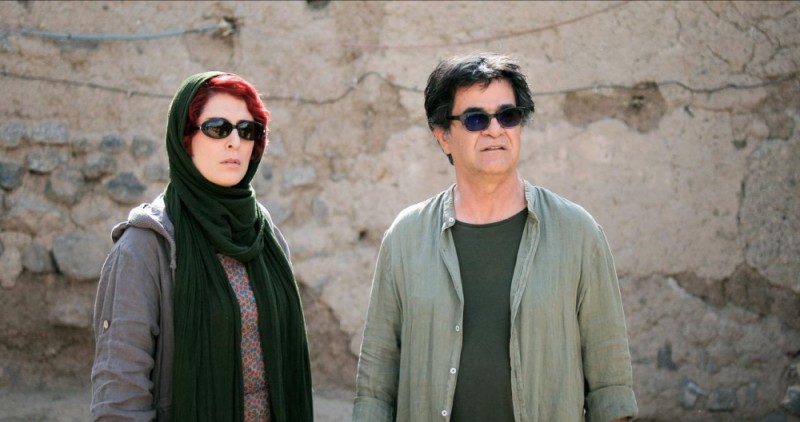
3 Faces is the fourth film Jafar Panahi has made in defiance of a 20-year filmmaking ban the Iranian government issued against him in 2010. The first three were all small-scale affairs, shot solo or with tiny crews, in which the camera never left the confines of a given space – Panahi’s apartment building in This Is Not a Film (2011), a holiday house in Closed Curtain (2013), and a taxi in Taxi (2015). His newest, which sees him working with a larger team, is almost entirely set in a remote village in the mountains, likely in Iranian Azerbaijan. This shift is in keeping with the thematic trajectory drawn by this series of clandestine films. While the first one focused on Panahi’s own predicament, each new installment has expanded the scope of his critique, encompassing further facets of the oppression engendered by the authoritarian values that hold sway over large parts of Iranian society. – Giovanni M.C. (full review)
Where to Stream: Kino Now, Amazon, iTunes, Google
Ad Astra (James Gray)
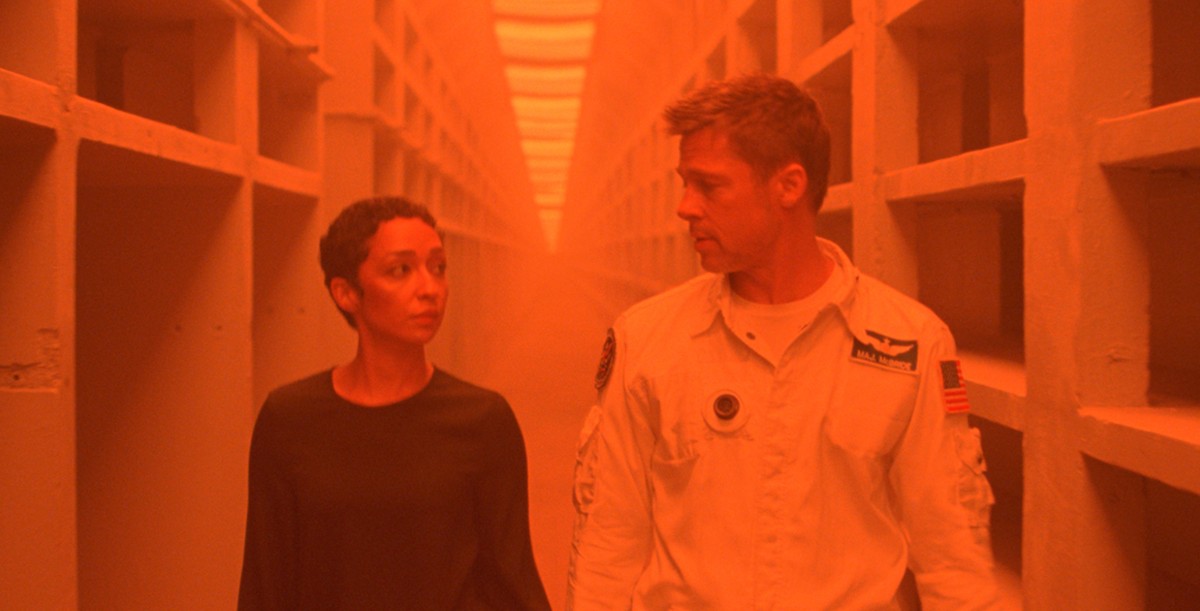
With Once Upon a Time… in Hollywood and The Irishman, it’s been a strong year for big-budget, auteur-driven cinema, but my pick for the best of the bunch in that regard is James Gray’s Ad Astra. A space epic of immense scale that still contains a personal, beating heart, if you didn’t get a chance to experience this on the biggest screen possible, it’s now available to stream. For more, listen to our podcast discussion. – Jordan R.
Where to Stream: Amazon, iTunes, Google
Aniara (Pella Kågerman & Hugo Lilja)
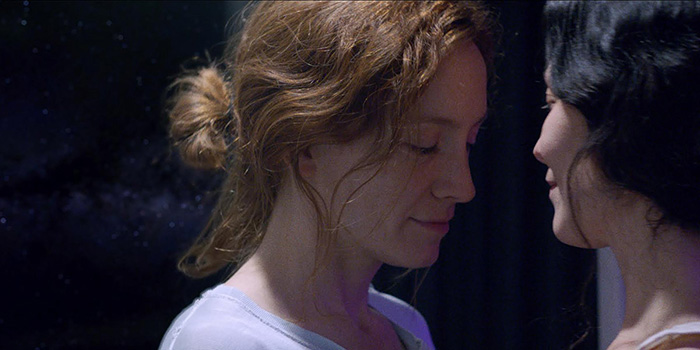
The title shares its name with a city-size spacecraft ferrying humans from Earth to Mars in barely three weeks. It’s a routine trip that’s never run into problems with many passengers already having family on the red planet to greet them upon arrival. But there’s a first time for everything as a small field of debris forces Captain Chefone (Arvin Kananian) off course. Unfortunately a screw breaches their hull anyway, pushing their nuclear fuel supply to critical mass. Expelling it may save them for the moment, but without it they cannot steer. So despite having enough self-sustaining electricity and algae (for air and food), there’s no way to return onto their necessary trajectory. Either a celestial body interrupts their path to slingshot back or they simply drift forever. – Jared M. (full review)
Where to Stream: Hulu, Amazon, iTunes, Google
Amazing Grace (Sydney Pollack)
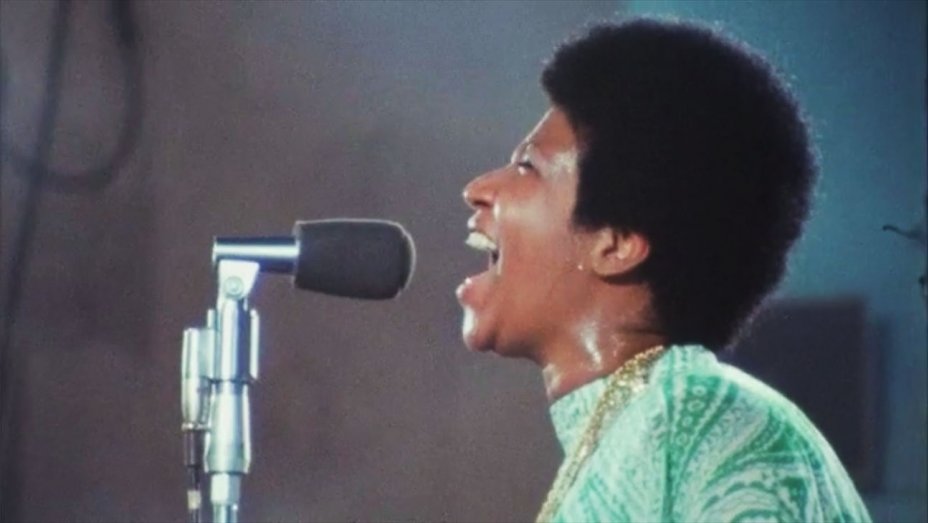
A time capsule that’s as fresh and powerful an experience as it must have been when recorded live in Watts in 1972, Amazing Grace is arguably one of the year’s most-anticipated films arriving after years of litigation and a fetal technical glitch that was resolved thanks to digital workflows. The film that exists, finished by producer Alan Elliot, bursts with intimacy and immediacy capturing a captivating and sublime performance by Aretha Franklin. In between the incredible artistry we discover and are introduced to several influences of Franklin’s including her father the minister and civil rights activist CL Franklin who provides a moving context for the performance along with commentary provided by Reverend James Cleveland. Amazing Grace is a rousing performance lensed with simple, raw, intimate filmmaking that’s unforgettable and nourishing for the soul. – John F.
Where to Stream: Amazon, iTunes
American Factory (Steven Bognar and Julia Reichert)

When the Rust Belt was hit hard in the financial crisis of 2008, the blue-collar workers of Dayton, Ohio found a savior in a Chinese billionaire. Six years after the lifeblood that was a General Motors plant was shut down, the car-glass manufacturers Fuyao opened up their first American factory in the town, meaning thousands of new job opportunities. The promise of a steady income lifts the spirits of the workers, but an East vs. West clash of working methods quickly emerges, causing labor division, personal strife, and some unexpected camaraderie amongst the workforce. Directors Steven Bognar and Julia Reichert–who were Oscar-nominated for another look into the recession, The Last Truck: Closing of a GM Plant–capture this conflict in it all its complications, humor, and heartbreak in their thoroughly engrossing documentary American Factory. – Jordan R. (full review)
Where to Stream: Netflix
Apollo 11 (Todd Douglas Miller)
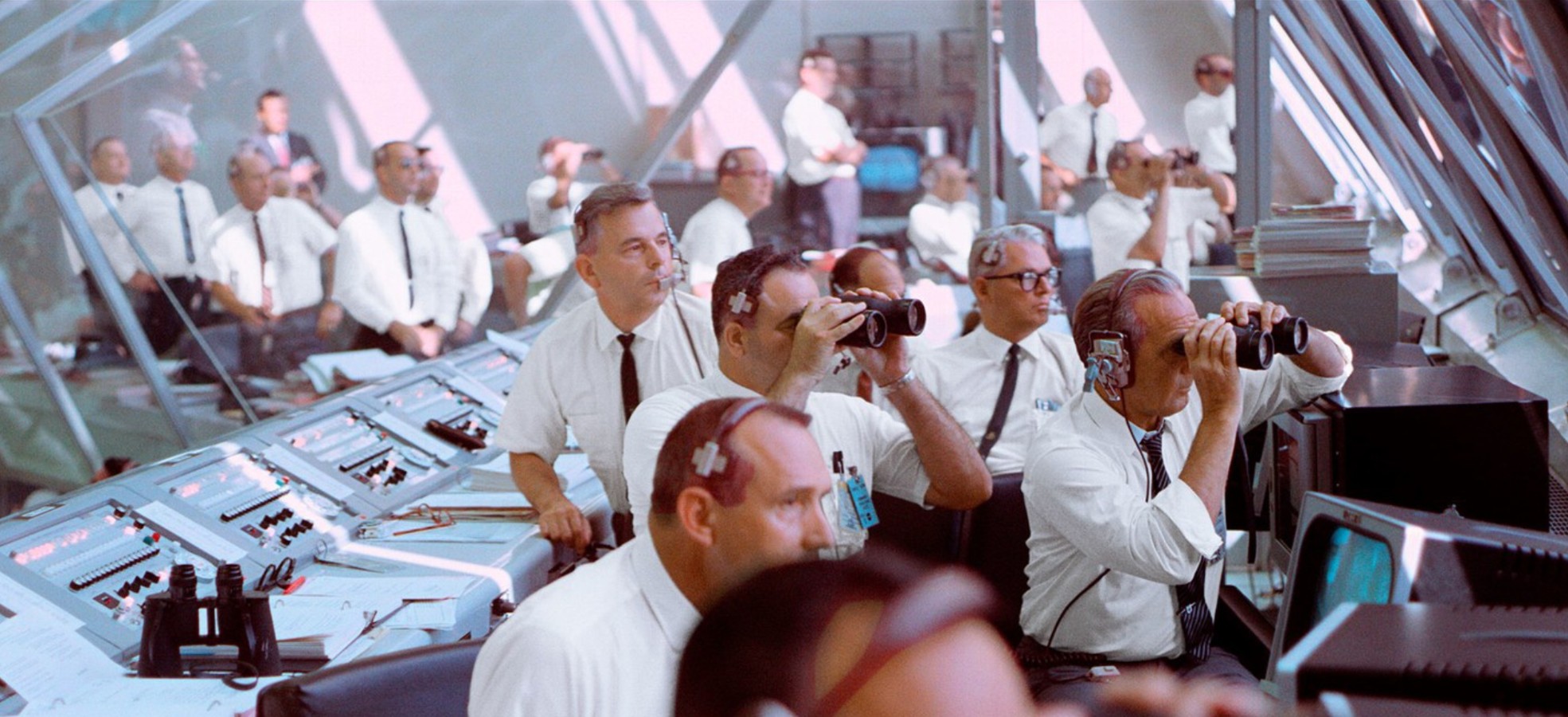
On July 16, 1969, Neil Armstrong, Michael Collins, and Buzz Aldrin embarked on a historic lunar odyssey, successfully landing on the moon and then returning to Earth. Free of talking heads, reenactments, and newly-recorded narration, the new documentary Apollo 11 takes viewers on this nine-day journey, constructed from astounding, never-before-seen 65mm Panavision, 35mm, and 16mm footage, as well as audio culled from over 18,000 hours of tapes. A perhaps initially unintended result when NASA handed over this remarkably pristine footage to director Todd Douglas Miller, his documentary is also a fascinating time capsule of this specific era. – Jordan R. (full review)
Where to Stream: Hulu, Amazon, iTunes, Google
An Elephant Sitting Still (Hu Bo)

Though in many respects unpolished, late Chinese director Hu Bo’s first–and only–feature is a cry into the void so raw and resounding it shakes you out of a stupor you never even realized. The breathlessly long set pieces build up a sense of suffocation in real time, while the subtle music and camerawork evoke the constant, unspoken despair of a billion nobodies. This is the work of a keenly observant storyteller who bared his last outrage on screen and who probably proved too perceptive for the moral bankruptcy of this world. – Zhuo-Ning Su
Where to Stream: The Criterion Channel, Amazon, iTunes
The Art of Self-Defense (Riley Stearns)
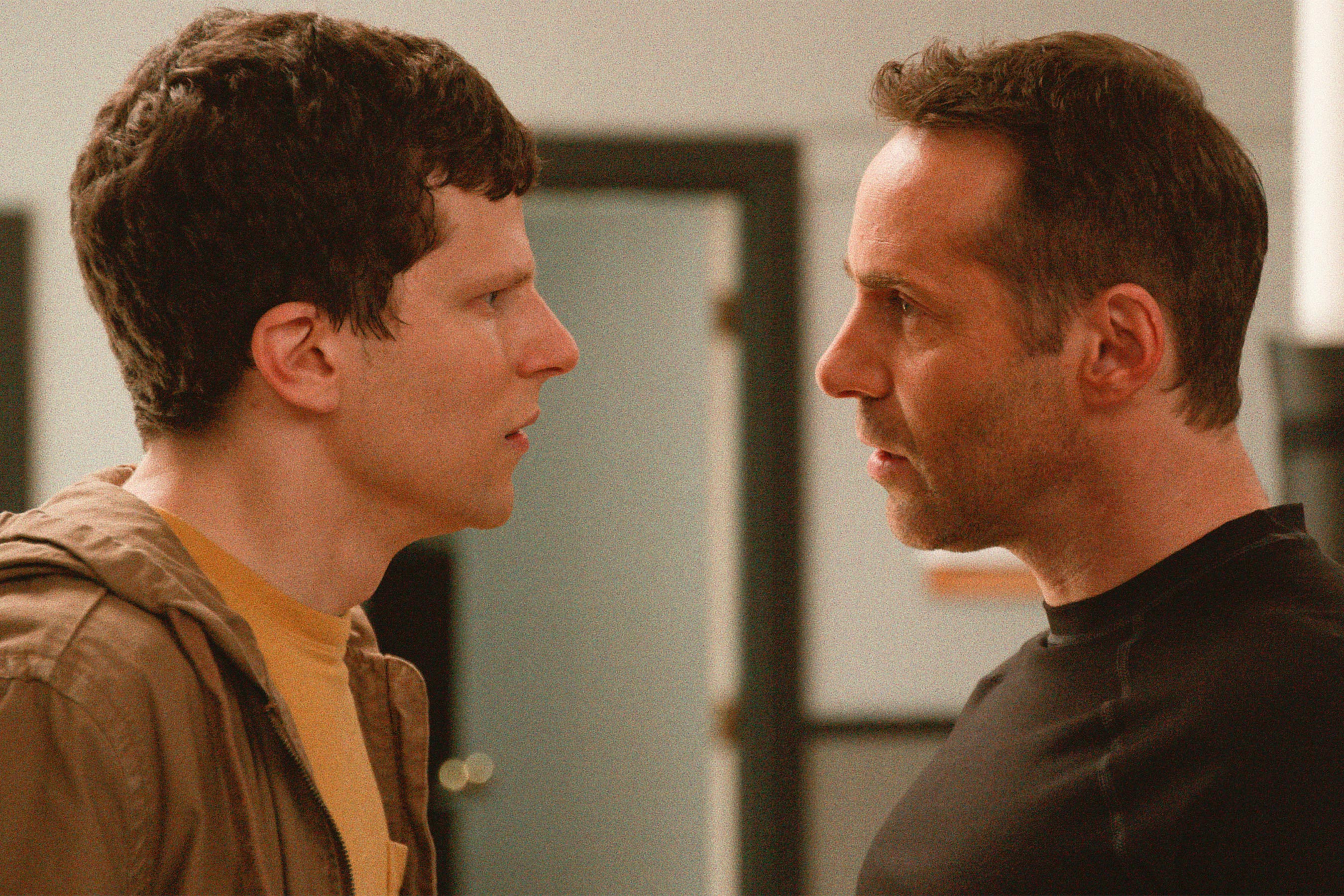
If Fight Club taught us one thing and one thing only it is to never underestimate the power of a bored single man with nothing to lose. And that is, in some ways, also the central thesis of Riley Stearns’ delightfully twisted The Art of Self-Defense, a pitch-black comedy starring Jesse Eisenberg as sad sack Casey, a lonely auditor who, in the film’s opening scene, is mocked at a distance in French by a couple. He, unfortunately, has become proficient in French, working his way through cassette tapes on his commute to work. He’s an easy and perhaps asexual target, turning to a meticulously photocopied men’s lifestyle magazine for advice and masterbatorial materials. – John F. (full review)
Where to Stream: Amazon, iTunes, Google
Ash is Purest White (Jia Zhangke)

For over two decades the filmmaker Jia Zhangke has, through his movies, shown Western audiences a barometer of life in 21st Century China. Ash is Purest White was both the most expensive and, arguably, least political film that Jia has made (read into that what you will) but it was also his most shape-shifting, adventurous and heart wrenching work, too. The director’s partner Zhao Tao provides that heartbeat as the wife of an absent mob guy who goes on an odyssey to find him. The film–and perhaps the world of Jia itself–would simply evaporate without her. – Rory O.
Where to Stream: Amazon, iTunes, Google
Atlantics (Mati Diop)

Somewhere along the stretch of Senegalese coastline where Mati Diop’s feature-length directorial debut Atlantics takes place, a futuristic tower stands tall and spectral above the ocean–a sinister crossbreed between a stalagmite and a lighthouse, its lights thrusting red and warm blobs into the night. It’s a fictional place in a story of magical, mysterious elements–a love story that crisscrosses between social commentaries and ghastly apparitions, addressing the global migrant crisis through a language of disquieting and stunning reveries. – Leo G. (full review)
Where to Stream: Netflix
The Beach Bum (Harmony Korine)

While it didn’t make a cultural mark akin to Spring Breakers, Harmony Korine’s latest feature is one of his best films. 95 minutes of lovable, shaggy bliss, it’s wonderfully free of stakes with a tone so earnest that it never feels tedious. Yes, Moondog is a role Matthew McConaughey was born to play, but his wayward, hazy journey is also supported by a hilarious cast, from Martin Lawrence’s (worst) tour guide (ever) Captain Wack to Zac Efron’s Creed-obsessed rehab escapee Flicker to Isla Fisher’s care-free Minnie, the wife of Moondog, who receives pleasure any way she wants it. This may be Korine doing his version of dad rock, but he’s locked into a loose inner spirituality that the current state of American independent cinema could certainly use more of. – Jordan R.
Where to Stream: Hulu, Amazon, iTunes, Google
The Biggest Little Farm (John Chester)

After getting evicted from their apartment in Los Angeles due to taking in a stray dog, filmmaker John Chester and food writer Molly Chester decide to try and cultivate a storybook farm in The Biggest Little Farm. The latest entry into the canon of films exploring food and ecosystems, like Aube Giroux’s Modified and Andrew Grace’s Eating Alabama, the documentary works as well as it does because of a reliance on its relatable subject and the director as its narrator. – John F. (full review)
Where to Stream: Hulu, Amazon, iTunes, Google
Birds of Passage (Cristina Gallego and Ciro Guerra)
It probably says more about Ciro Guerra’s last film than this inimitable new offering (which he co-directed with his long-serving producer Christina Gallego) to suggest that fans of Embrace of the Serpent might find Birds of Passage just a little on the linear side. However, to compare the two is surely akin to comparing the varying potency of two strains of class-A hallucinogens. Set in Columbia in the 1960s, this violent, operatic, and sparsely trippy film follows the early days of marijuana trafficking in the region. Don’t worry if that all sounds a touch familiar. – Rory O. (full review)
Where to Stream: HBO, Amazon, iTunes, Google
Black Mother (Khalik Allah)

Comparisons of Black Mother to cinematic poetry are apt, but it’s harder to pinpoint than that, more aptly described in relation to sound or music–free-flowing jazz, fluidly connecting otherwise inconceivable strands of culture, politics, and history in Jamaica. The faces shown rarely match the soundscape and the audio and visual components of the film seem to operate parallel to each other. Words, in this case, fill in what traditional scoring tries but often fails to accomplish. – Jason O. (full review)
Where to Stream: iTunes
Cold Case Hammarskjöld (Mads Brügger)

In 1961, Secretary-General of the United Nations Dag Hammarskjöld was killed in a plane crash in Africa under mysterious circumstances. Beginning as an investigation into his still-unsolved death, the trail that Mads Brügger follows in Cold Case Hammarskjöld is one that expands to implicate some of the world’s most powerful governments in unfathomably heinous crimes. Without revealing the specifics of the jaw-dropping revelations in this thoroughly engrossing documentary, if there’s any justice, what is brought to light will cause global attention and a demand for some kind of retribution. – Jordan R. (full review)
Where to Stream: Hulu, Amazon, iTunes, Google
Crawl (Alexandre Aja)

After forays into horror-comedy (Piranha 3D) and dark fables (Horns), New French Extremity director Alexandre Aja comes full circle with straight-forward, gnarly horror in Crawl. A precise and tense midsummer sandbox picture, Crawl allows Aja’s fixations on viscera and tension to bare their sharp teeth in a single space, recalling his earlier work (High Tension, The Hills Have Eyes) through sheer tempo and intensity, all while maintaining a father-daughter (and dog) narrative with just enough heft and sincerity to resonate. – Mike M. (full review)
Where to Stream: Amazon, iTunes, Google
Diane (Kent Jones)
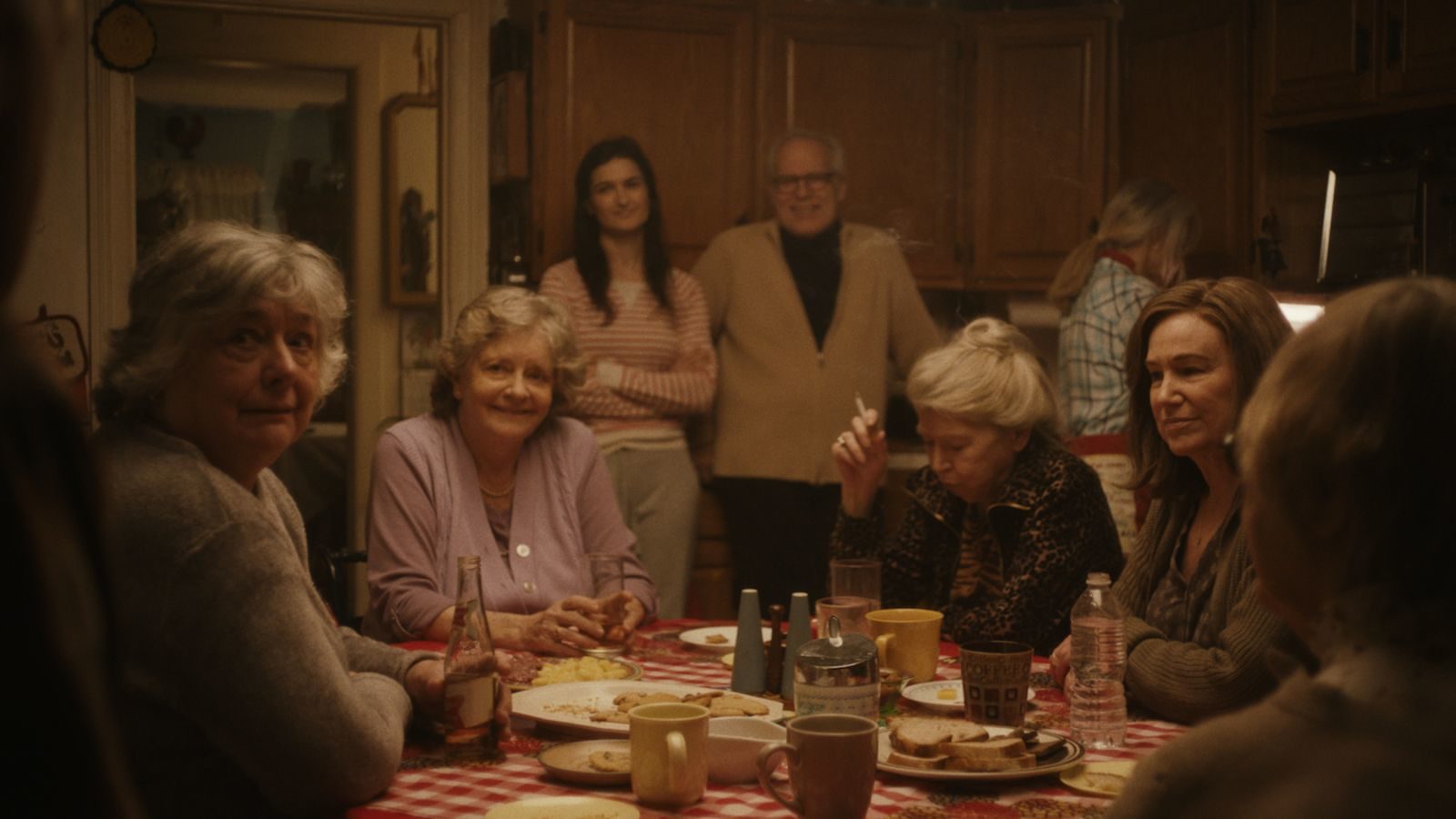
The narrative directorial debut of film scholar, curator, and documentary filmmaker Kent Jones elicits an awful lot of anticipation. Often, first features contain raw emotions and boundless pent-up ideas often toned down in future efforts. Diane, written and directed by Jones–known for his collaborations with Martin Scorsese, along with his previous theatrical feature which aimed to recapture the spirit of Hitchcock/Truffaut’s conversations by engaging with the best filmmakers working in contemporary cinema–is an observant and nuanced dramas which feels closer to the emotional truths of Kenneth Lonergan and Angus MacLachlan than the formal flair of Scorsese and Hitchcock. – John F. (full review)
Where to Stream: Hulu, Amazon, iTunes, Google
The Death of Dick Long (Daniel Scheinert)
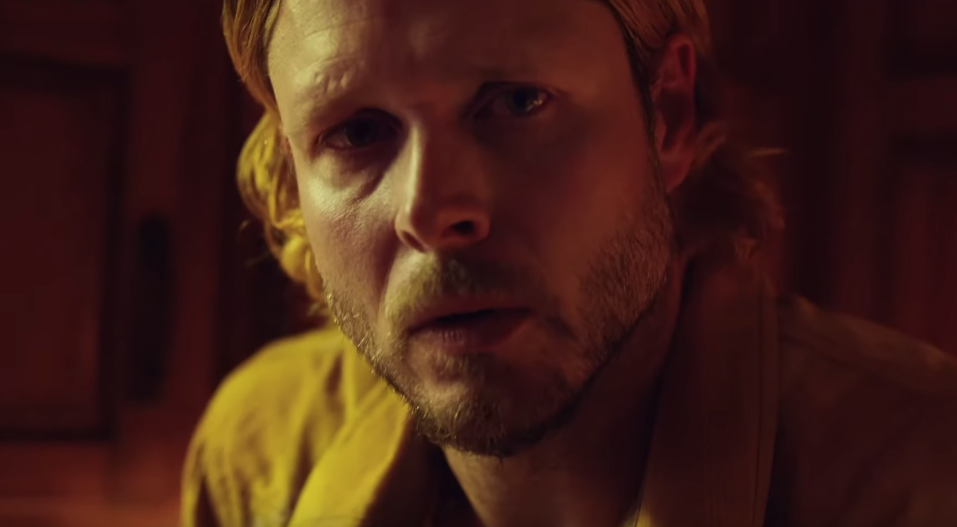
When the directing duo known as DANIELS brought Swiss Army Man to Sundance in 2016 they took audiences aback with their peculiarly original vision, involving fart-propelled, jet-skiing corpses and boner compasses. Daniel Scheinert, one-half of the directing team, has now returned with The Death of Dick Long, a more naturalistic but also funnier (and more disturbing) follow-up. A butt rock epic built on bad decisions with plenty of affectation for its idiotic characters, the deeply dark comedy does for small-town Alabama what Fargo did for Minnesota. – Jordan R. (full review)
Where to Stream: Amazon, iTunes, Google
Dolemite Is My Name (Craig Brewer)
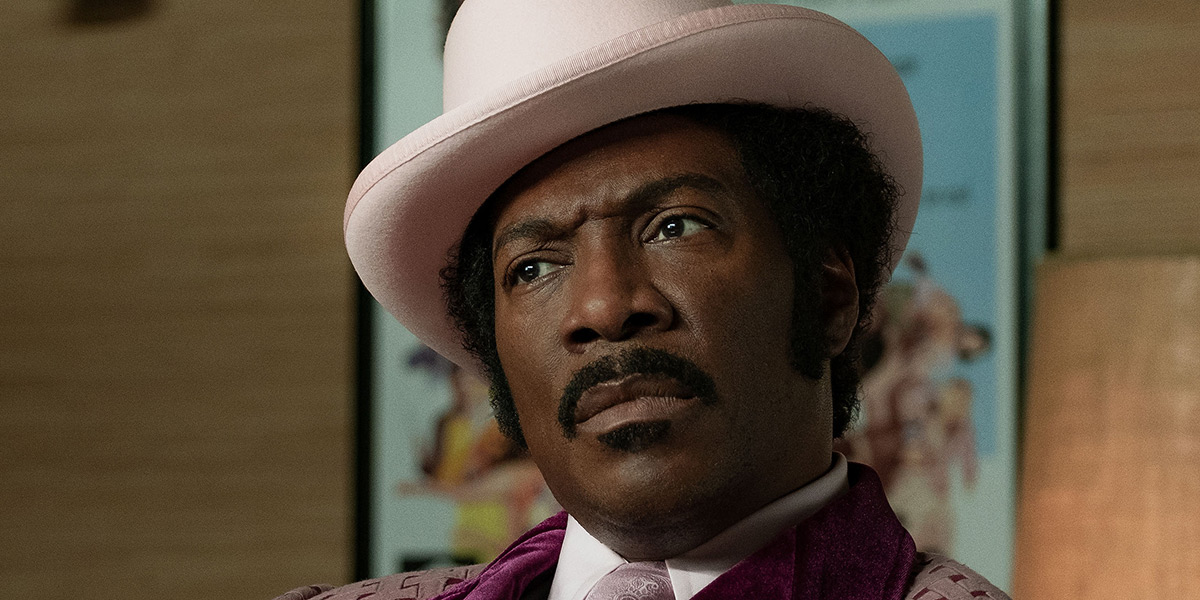
The opening scene of Dolemite Is My Name shows promise: future Blaxploitation legend Rudy Ray Moore (Eddie Murphy) is trying to shuck an old record he recorded to a radio DJ (Snoop Dogg); Murphy’s iconic fast-talking quality is on display, but with a strong edge of desperation. You’re reminded of the star’s talent, and how it would be great for it to mature with him. So there comes some expectation for this film to resurrect the once-great performer. If to compare the once “the funniest man alive” Murphy who could breeze through a Carson interview in the 80s to the awkward, uncomfortable one struggling through a Letterman appearance to promote Tower Heist in 2011, one can easily see a kind of shared middle-aged malaise between him and Moore as we meet him in the film. – Ethan V. (full review)
Where to Stream: Netflix
Domino (Brian De Palma)
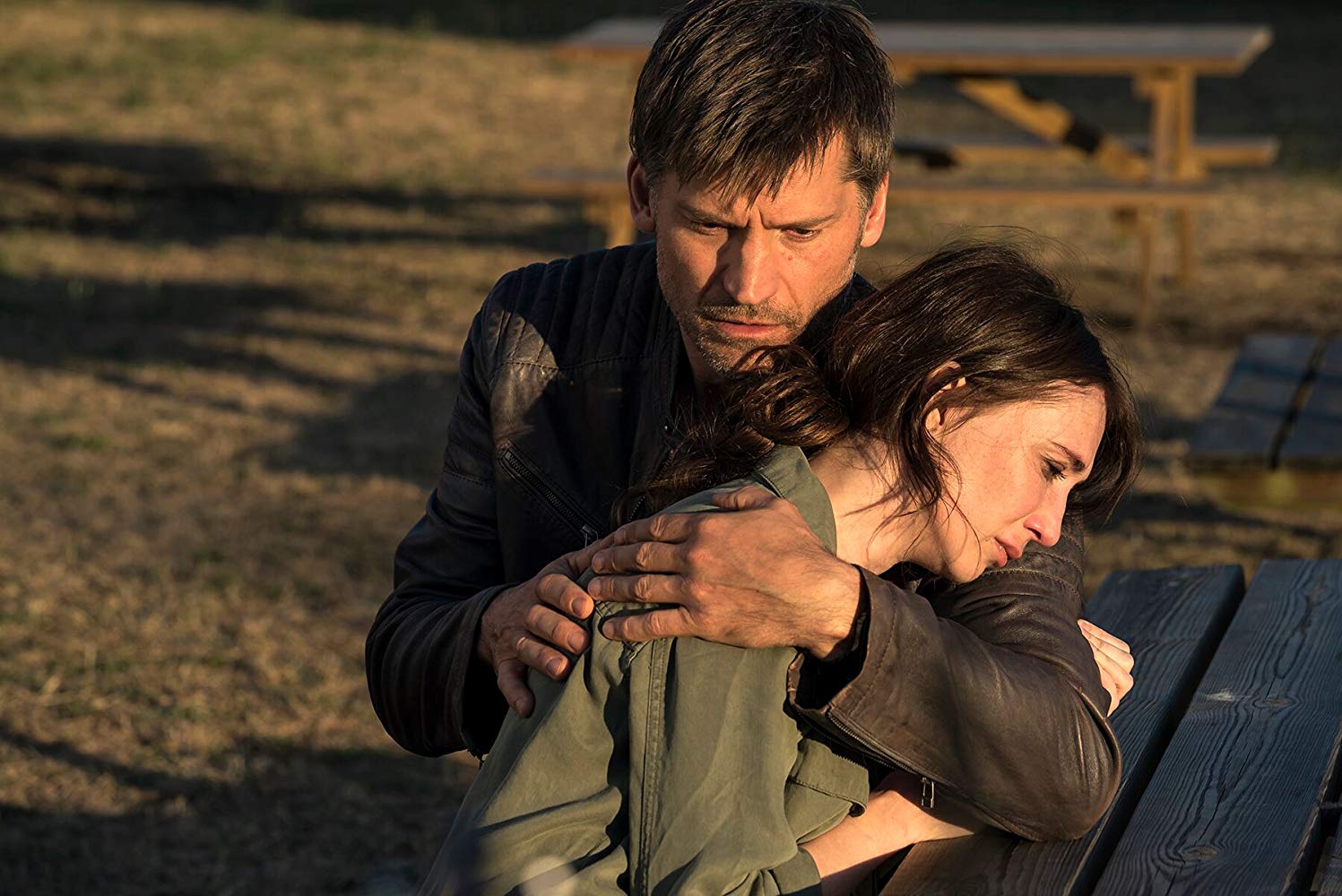
The latest from Brian De Palma hits film culture not unlike a moody son trudging to their graduation party at a parent’s behest, a master of big-screen compositions relegated to VOD for those who bother plunking down. That tussle between pedigree of talent and nature of distribution foretells the chaos within: at one moment lit like a Home Depot model living room–a fault I’m more willing to chalk up to incomplete post-production, less likely to blame on Pedro Almodóvar’s longtime DP José Luis Alcaine–the next photographed and cut as if an old pros’ sumptuous fuck-you to pre-vis-heavy and coverage-obsessed action-filmmaking climate, the next maybe just an assembly of whatever master shots the team could scrounge together during those 30 production days. To these eyes it’s a chaotic joy; nearly malicious, deeply serious about the wounds of contemporary terrorism, and smart enough to pull off a mocking of the circumstances around those fighting it. – Nick N. (full review)
Where to Watch: Amazon, iTunes, Google
Dragged Across Concrete (S. Craig Zahler)
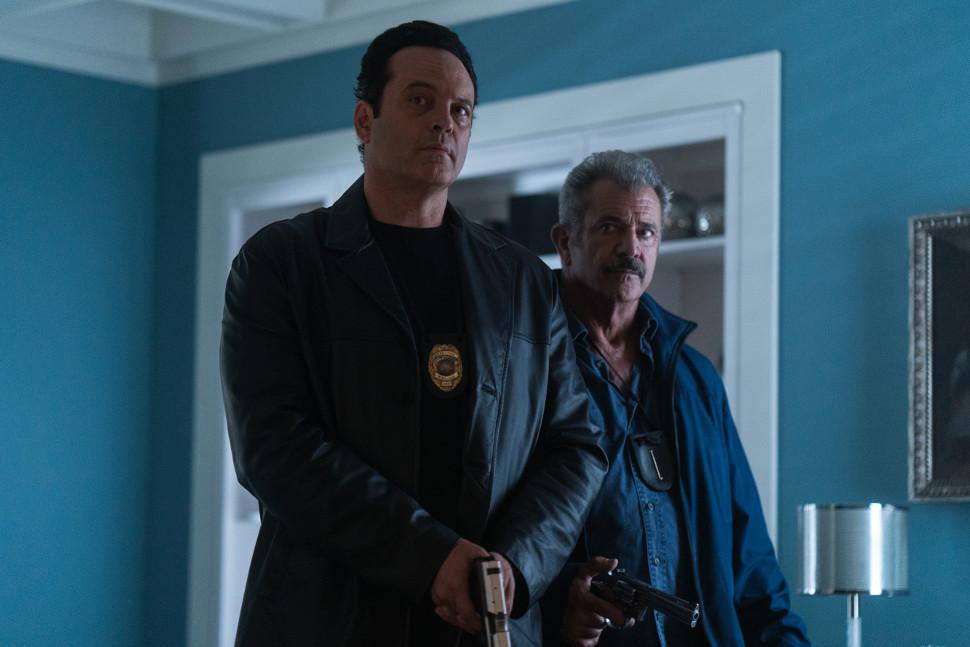
Anyone transfixed by the hyper-stylized meathead triumph of blood and violence of Brawl in Cell 99 should be warned. Dragged Across Concrete, S. Craig Zahler’s third feature, is comparatively much tamer than his 2017 prison drama. But where the new entry lacks in bloodshed and bone-splintering violence, it still confirms Zahler’s penchant for complicated characters, and conjures up a bad cops action movie which, despite blips in tension and a second half far superior to the first, crystallizes Zahler’s as a key name to watch for lovers of the genre. – Leonardo G. (full review)
Where to Stream: Amazon, iTunes
The Farewell (Lulu Wang)

There’s something special about The Farewell. Written and directed by Lulu Wang and starring Awkwafina, this is the kind of film that feels specific and universal all at once. The film opens with the title card: “Based on an actual lie.” Wang builds this narrative from personal experience: her family chose to hide a cancer diagnosis from her grandmother (Zhao Shuzhen) and spend the final days celebrating instead of mourning. Or at least that was the idea. A fairly elaborate plan is hatched, involving a sham wedding that forces an abrupt reunion back in China. – Dan M. (full review)
Where to Stream: Amazon, iTunes, Google
La Flor (Mariano Llinás)
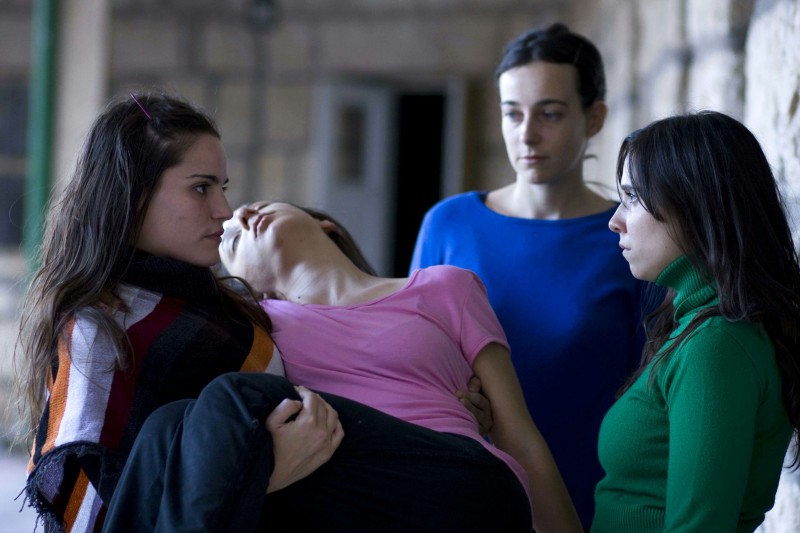
The fundamental details surrounding La Flor — its fourteen-hour running time, its ten-year production, its appropriately devilish six-part structure — already have it predestined for cult status, and yet Mariano Llinás’s mammoth effort both fulfill and far exceed any preconceptions. An extraordinary ode to forgotten genres, a sincere and open-hearted love letter to its four central actresses, who turn in some of the most astonishing performances in recent memory: what is perhaps most overwhelming about La Flor is that it manages to contain infinite worlds of pleasure, surprise, and glory, while paying tribute to the possibilities of cinema, storytelling, and human creativity. – Ryan S.
Where to Stream: Grasshopper Film (through 12/31 only)
For Sama (Waad Al-Kateab and Edward Watts)

The top documentary winner at SXSW this year, Waad Al-Kateab and Edward Watts brought For Sama to Cannes and after a summer release, it’s now streaming for free on YouTube. John Fink said in his review, “Co-directed with Edward Watts, For Sama’s structure mirrors the chaos of the moments it captures, simultaneously connecting both her personal and the political past, present and future as she feels an affinity for her home while also lamenting the conditions they are living under. When she gives birth to her second child, away from her Syria she comments that she smells the city. For Sama is no doubt powerful in its immediacy and its unafraid to shy away from the gory details as families–including al-Kateab’s own–become casualties of war, her dreams differed… For Sama is a harrowing experience and certainly one of the most essential films of the year.”
Where to Stream: YouTube
Genèse (Philippe Lesage)
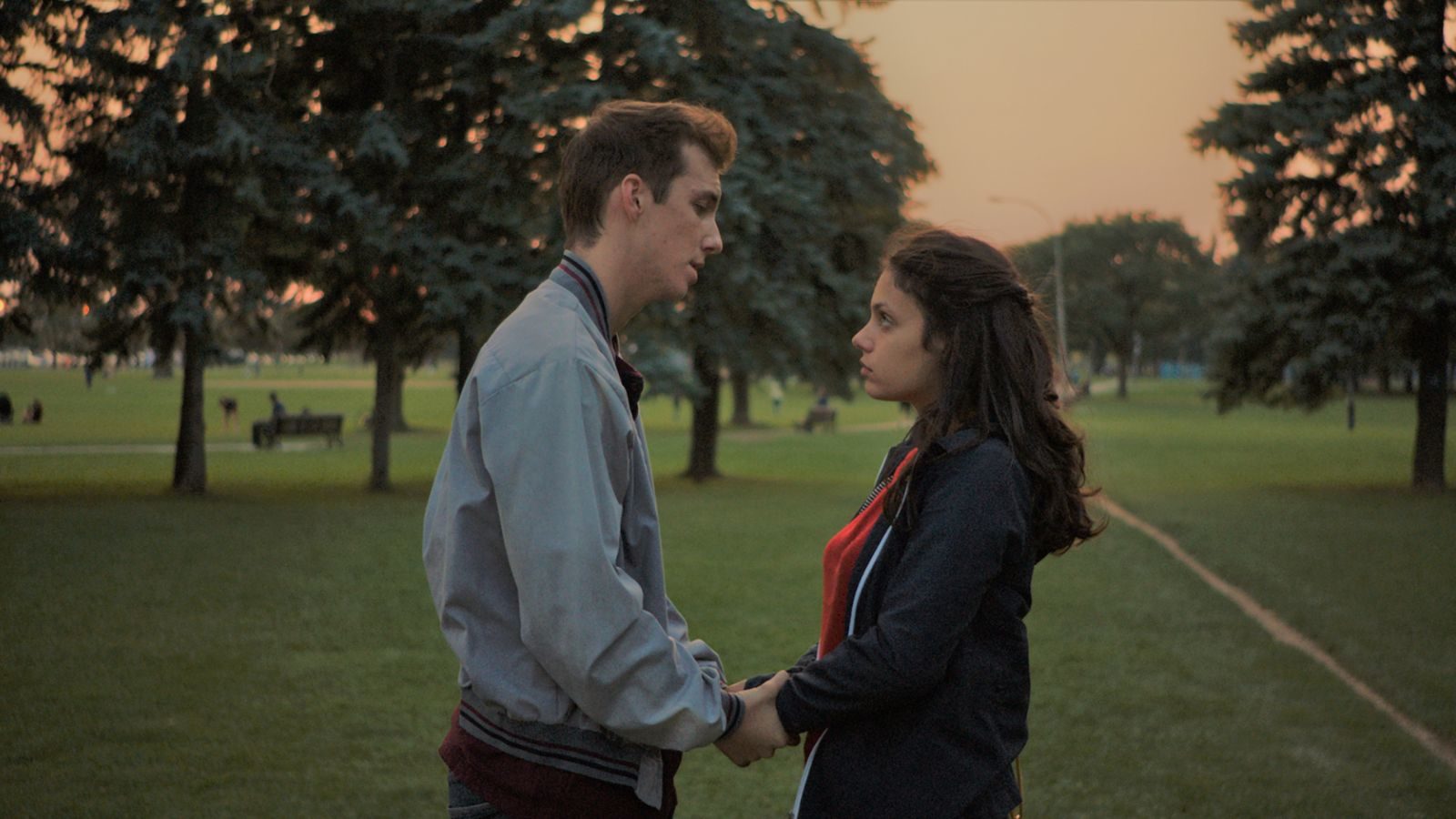
Philippe Lesage’s stunning coming-of-age film Genesis (aka Genèse) follows the lives of half-siblings Guillaume (Théodore Pellerin) and Charlotte (Noée Abita) as they traverse first love, desire, and danger. Zhuo-Ning Su said in his review, “In the grand scheme of things, teenage love affairs–together with all the raptures, jitters, devastations associated with them–probably don’t count that much. But then again probably everyone can relate to the sheer groundbreaking force of that first quickening of the heart, of that blinding rush of hormones that compels us to act with a recklessness that we’ll later learn to forever suppress. Quebecois filmmaker Philippe Lesage’s Genesis is an ode to that time in our lives when we still paid more attention to impulses than consequences. Trifling perhaps in terms of subject matter and scope, but it absolutely mesmerizes.”
Where to Stream: Amazon, iTunes
Her Smell (Alex Ross Perry)

Distinct from musicals, music biopics, and documentaries, fiction films about the challenges faced by musicians in practicing their craft have been around since the earliest days of cinema. From The Jazz Singer and A Star Is Born to recent releases such as Not Fade Away and Inside Llewyn Davis, the tribulations of musicianship have long fascinated filmmakers and audiences alike. Although these struggles are typically emphasized for dramatic purposes, rarely is the viewer subjected to the downward spiral of one of these artists for the overwhelming majority of the runtime, let alone with such intoxicating lucidity; a feat that Alex Ross Perry’s Her Smell accomplishes with flying colors. – Kyle P. (full review)
Where to Stream: Amazon, iTunes, Google
High Flying Bird (Steven Soderbergh)
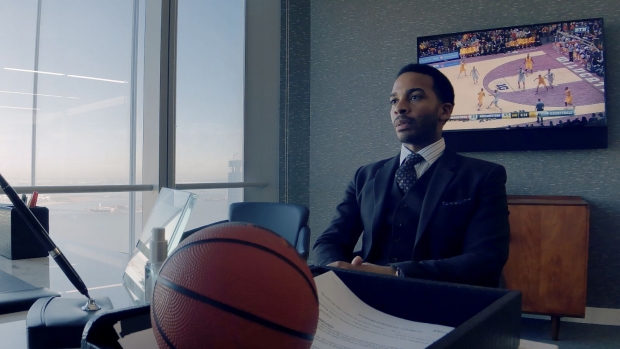
It would come as some surprise if any one character actually hears, digests, and applies everything said to them through the course of High Flying Bird, a typically distanced and dense Steven Soderbergh study of institutional malfeasance . That its verbiage, courtesy Moonlight originator Tarell Alvin McCraney, is an even split between street talk and corporate speak would be dense enough were the subject not so specific: not just the NBA or a player and agent’s duties (unique and mutual both given equal ground), but how its individual, all-too-human parts work amidst a league-wide lockout putting everybody on edge. Words, chewed by a cast like a too-tough steak, flow ceaselessly until a key term or turning point–”protocol” and “lockout” to establish arguments, “you thought” as a sharpened stopper–take us back to earth, briefly, until we go again. And it all sounds like the primary recording device was an iPhone. You’ll miss some things. – Nick N. (full review)
Where to Stream: Netflix
High Life (Claire Denis)

While High Life has understandably drawn all kinds of comparisons to the 60s and 70s cerebral sci-fi canon (notably Solaris and 2001: A Space Odyssey), for both its abstract use of space imagery and its minimalist ship design which more often than not resembles an artificially-lit hospital filled with dated technology, its soul is firmly in the sensibilities of its filmmaker, French master Claire Denis, who mines the genre for a deeply sensorial and moving portrait of the misery and horror parents are willing and perhaps responsible to endure so their children might not have to. – Josh L. (full review)
Where to Stream: Amazon Prime, iTunes, Google
Honeyland (Ljubomir Stefanov and Tamara Kotevska)

The need for fidelity characterizes Honeyland, a documentary co-directed by Ljubomir Stefanov and Tamara Kotevska (in their feature debut) which premiered at this year’s Sundance Film Festival and won the festival’s documentary World Cinema Grand Jury prize. For more or less the entirety of the film, its focus rests upon Hatidze, a Macedonian woman in her fifties who lives with her ailing mother in a deserted mountain village and makes both her living and passion out of harvesting honey. The various synopses describe her as the last traditional female beekeeper in Europe, but this is never laid out in text or voiceover, as the images and moments are presented without any overt intervention by the documentarians. – Ryan S. (full review)
Where to Stream: Amazon, iTunes, Google
Hotel by the River (Hong Sang-soo)

“He’s hardly a real auteur,” says a woman of an arthouse director in Hong Sangsoo’s achingly melancholic Hotel by the River, “and he does ambivalent stuff.” Hong’s acolytes have reasons to rejoice in the Korean’s latest feature: beautifully shot in crisp black and white by Kim Hyung-koo – reminiscent of his work in Hong’s The Day After (2017) and Grass (2018) – and packed with a few of the director’s recurrent casting choices (including muse Kim Min-hee and Kwon Hae-hyo) Hotel by the River is imbued with the self-irony that permeates much of Hong’s ever-growing filmography, only this time the mockery is mixed with a tragic aftertaste that adds to the drama an unsettling and refreshing aura. – Leonardo G. (full review)
Where to Stream: iTunes
I Lost My Body (Jérémy Clapin)
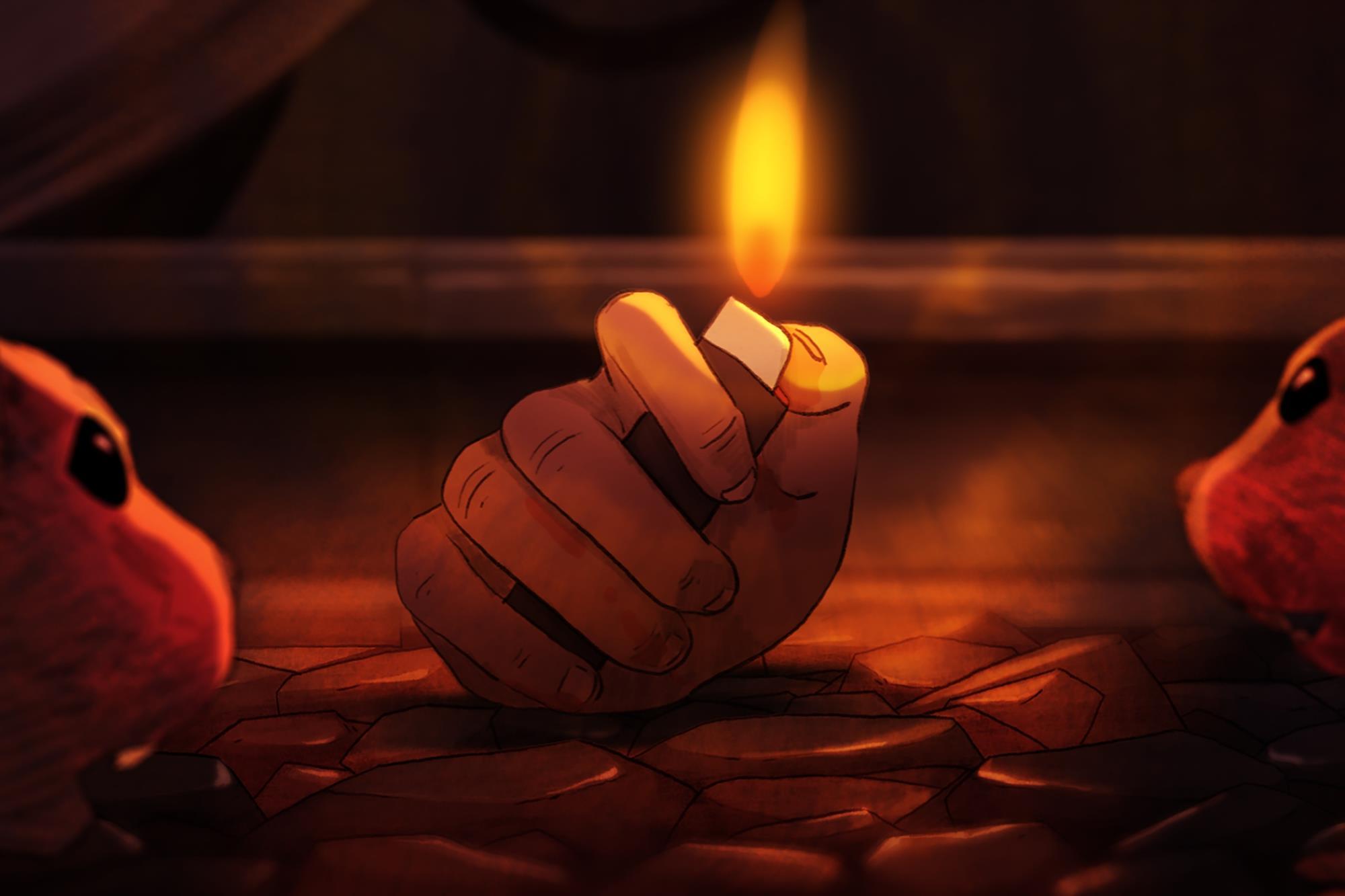
Hands down one of the best animated films of the year, Jérémy Clapin’s directorial debut I Lost My Body tells parallel narratives: one, a more traditional romance between a failed pizza delivery driver and one of the women he delivers to; the other, a quest following a severed hand’s journey back to its owner. While the latter narrative may sound gruesome, Clapin’s film is, instead, hopeful, providing a previously unimagined emotional connection to a disembodied appendage. The ways in which these two narratives intertwine, and The Red Balloon-esque journey that the hand takes, balances an emotional journey that reflects on the role of trauma within the present, and the myriad ways in which we deal with loss. – Christian G. (full review)
Where to Stream: Netflix
The Irishman (Martin Scorsese)
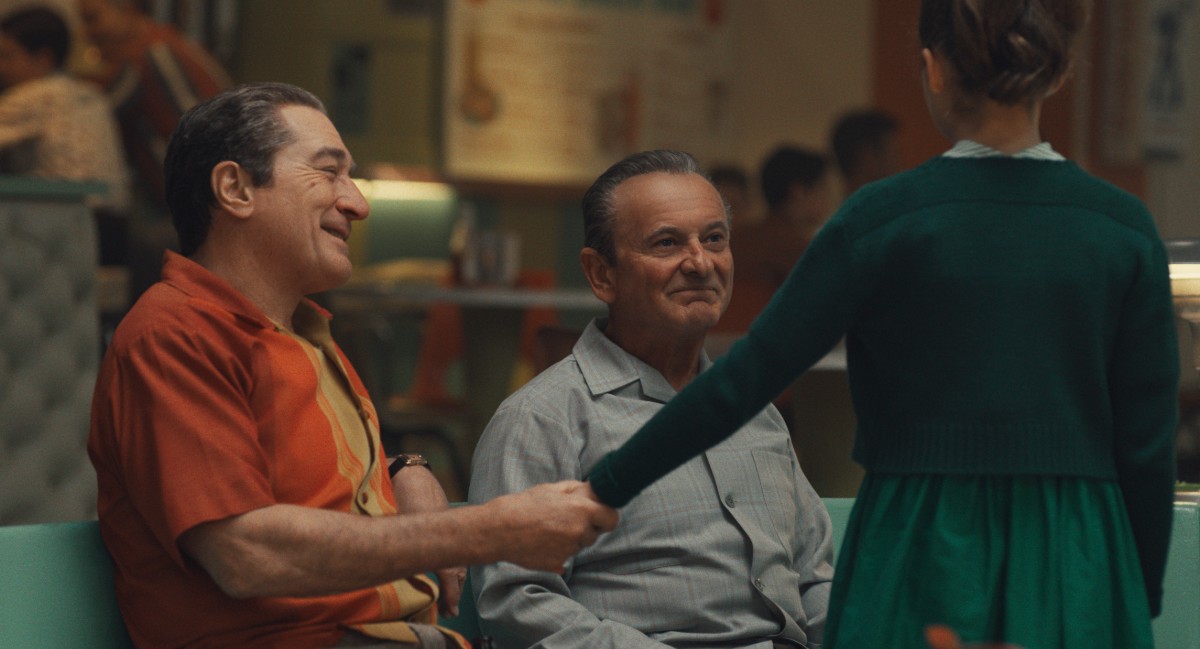
It’s a critical cliché to describe a filmmaker’s late-period output as elegiac, nostalgic, or any other adjective that suggests an aging artist grappling with their own mortality. With that said, Martin Scorsese actively courts this framework for his latest film The Irishman, a 209-minute crime epic that reunites him with actors Robert De Niro and Joe Pesci, with whom he hasn’t worked since Casino in 1995. All three men, along with co-star Al Pacino, are septuagenarians who have been working in the film industry for upwards of half a century. To watch The Irishman means to confront their age, history, and inevitable decline. Scorsese filters this idea through a dramatization of a mob enforcer’s life, but there’s no ignoring the self-reflexive mode on display. – Vikram M. (full review)
Where to Stream: Netflix
John Wick: Chapter 3 – Parabellum (Chad Stahelski)
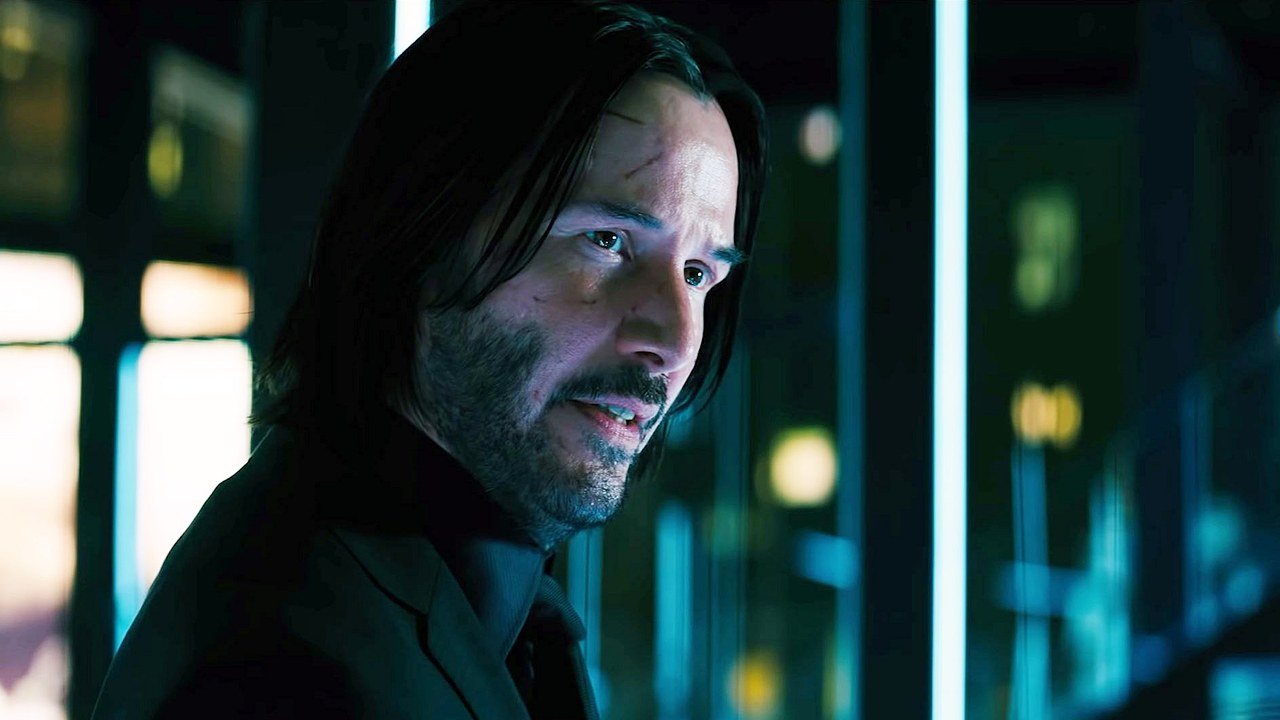
Beginning with what would be the climax of a standard action film, John Wick: Chapter 3 – Parabellum runs like a well-oiled machine, delivering exactly what you want in ways you didn’t know you wanted. Picking up mere moments after chapter two’s finale, there’s only a few minutes on the clock before John Wick (Keanu Reeves) becomes “excommunicado” with a $14 million price tag on his head, and all of the world’s assassins on his tail. Blood is on his hands after a verboten killing on the Continental Hotel grounds so he’s on the run, and his options are running short. – Jordan R. (full review)
Where to Stream: Amazon, iTunes, Google
Knock Down the House (Rachel Lears)
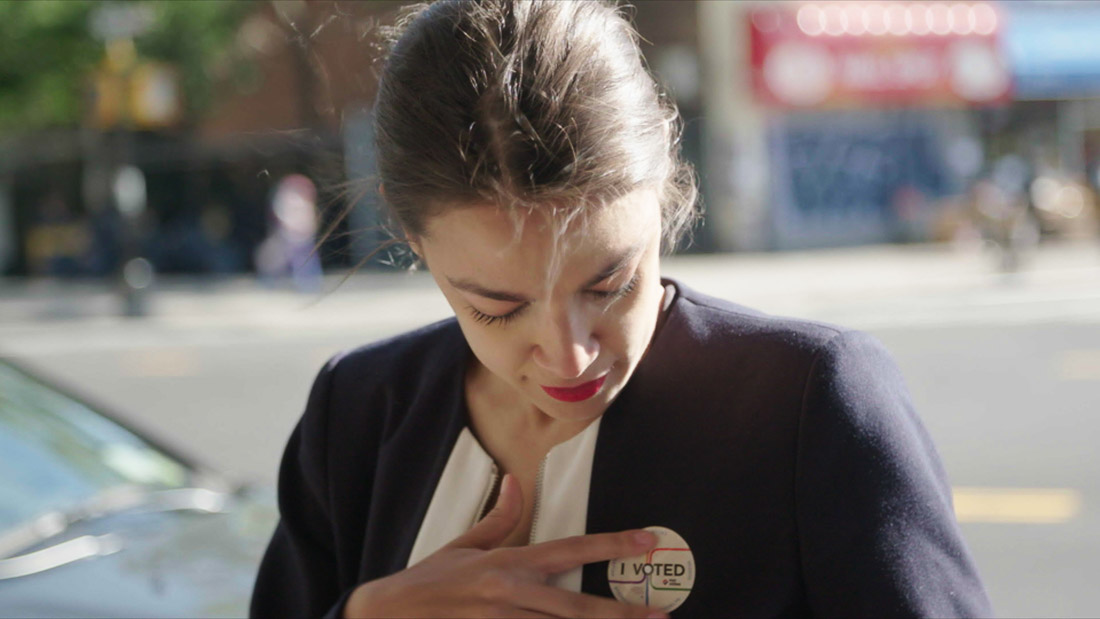
Rachel Lears’ Knock Down the House is a fun, emotionally powerful, inspiring look at the incredible wave of would-be politicians that sought, in 2018, to challenge status quo Democrats and enact meaningful change—all while refusing money from Wall Street fat cats and big business super PACs. – Jake H. (full review)
Where to Stream: Netflix
The Last Black Man in San Francisco (Joe Talbot)
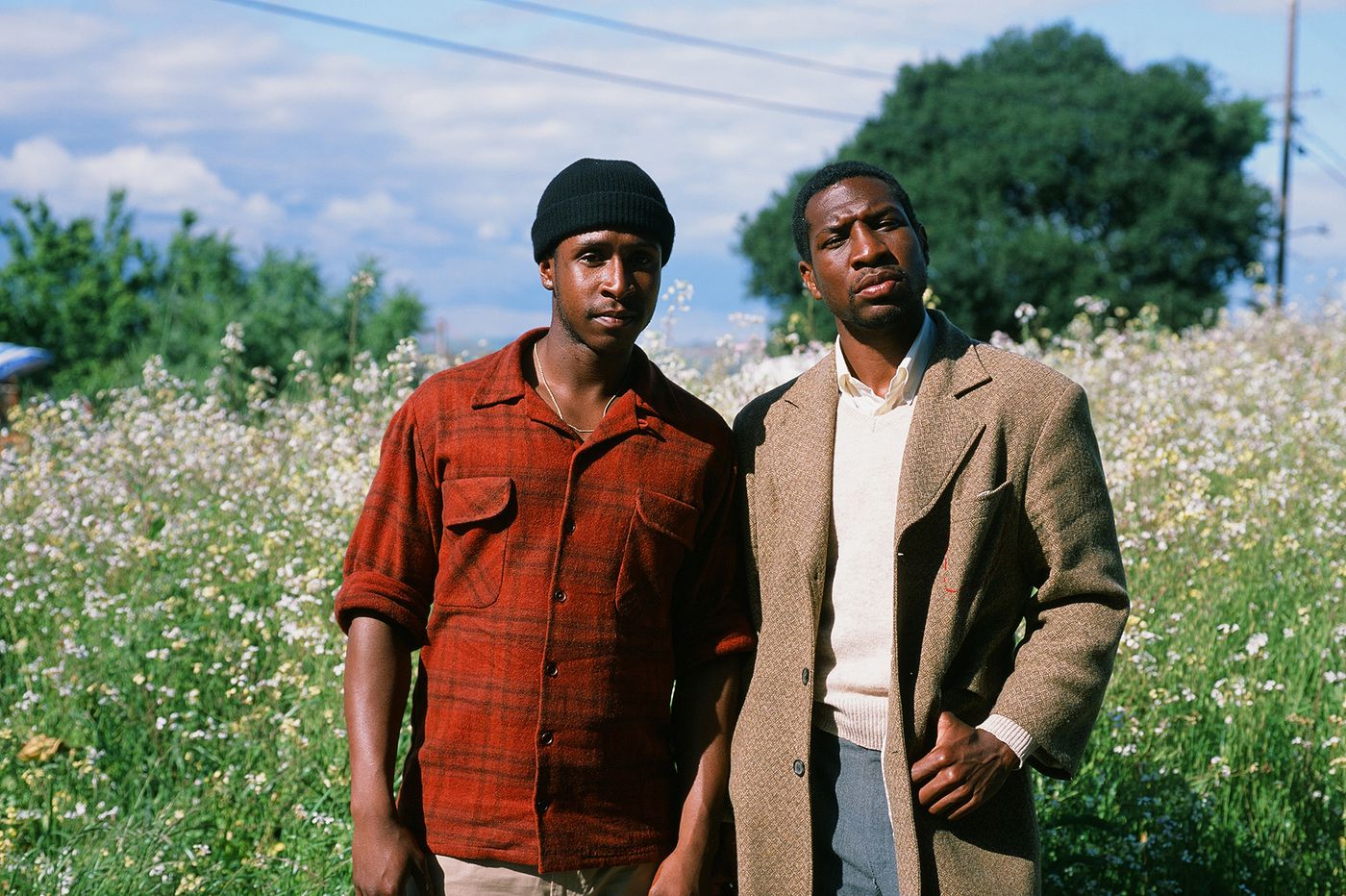
The impetus for The Last Black Man In San Francisco in 2019 makes a lot of sense. Cities like San Francisco have been changing, due to an influx of mostly young, mostly white people in (sometimes) newer forms of industry coming in and buying up land and buildings and neighborhoods. The result is displacement for a great deal who have lived in these places for their whole lives, in many cases their parents and grandparents before them. Director Joe Talbot, co-writing the script with star Jimmie Fails and Rob Richert, is a San Franciscan to the core and it shows. There’s a love for the city that’s only matched by a conflicted hate for all the change. Jimmie (Fails) has a line that says as much. – Dan M. (full review)
Where to Stream: Amazon Prime, iTunes, Google
The Lighthouse (Robert Eggers)
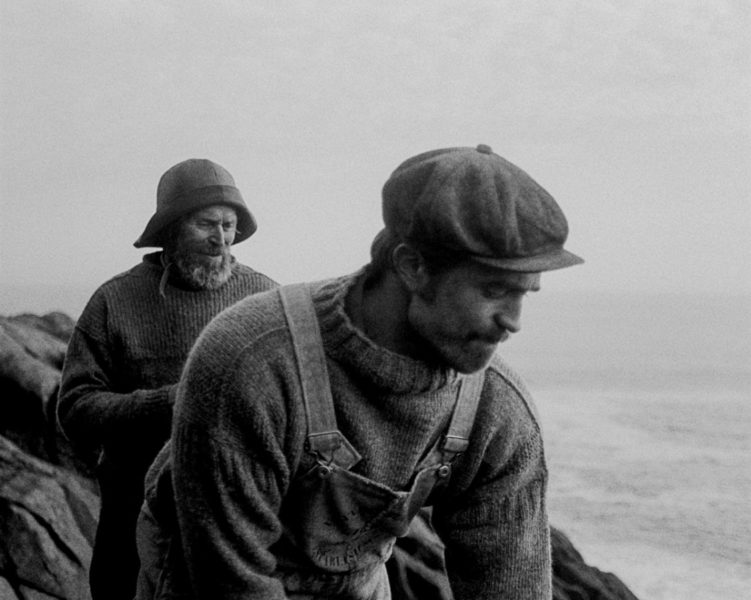
For all its finely considered dread, the reason Robert Eggers’ ungulate-deifying debut The Witch made such a cultural mark had far more to do with its sense of mischief. Sure, puritan religious life is fine, Eggers seemed to say, but have you ever tried living deliciously? His second feature, The Lighthouse, brilliantly confirms that taste for devilry and narrative subterfuge. It’s a ghost story drenched in gritty, saltwater-flecked period accuracy and anchored in cautionary maritime fables, but one with a boozy, amorous, and darkly comic edge that made me think of everything from The Birds to Ben Wheatley’s similarly trippy A Field in England. Needless to say, it rules. – Rory O. (full review)
Where to Stream: Amazon, iTunes, Google
Long Day’s Journey into Night (Bi Gan)
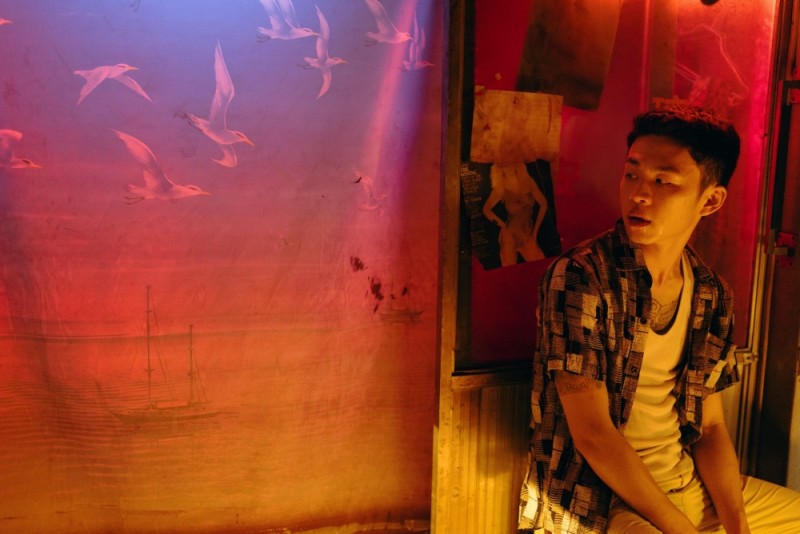
One of the most staggering cinematic experiences I’ve had of late was Bi Gan’s transportive, dreamlike odyssey Long Day’s into Night. While much ink has been spilled over its astounding hour-long 3D single take through multiple towns and above, the rest of the film is just as ravishing as we follow (though that word is loosely defined in meditative ways) a detective’s journey to track down a mysterious woman. While influences from Wong Kar-wai to Andrei Tarkovsky are present, this young director establishes a voice all his own, a remarkable feat just two films in. – Jordan R.
Where to Stream: Kino Now, Amazon, iTunes, Google
Luce (Julias Onah)
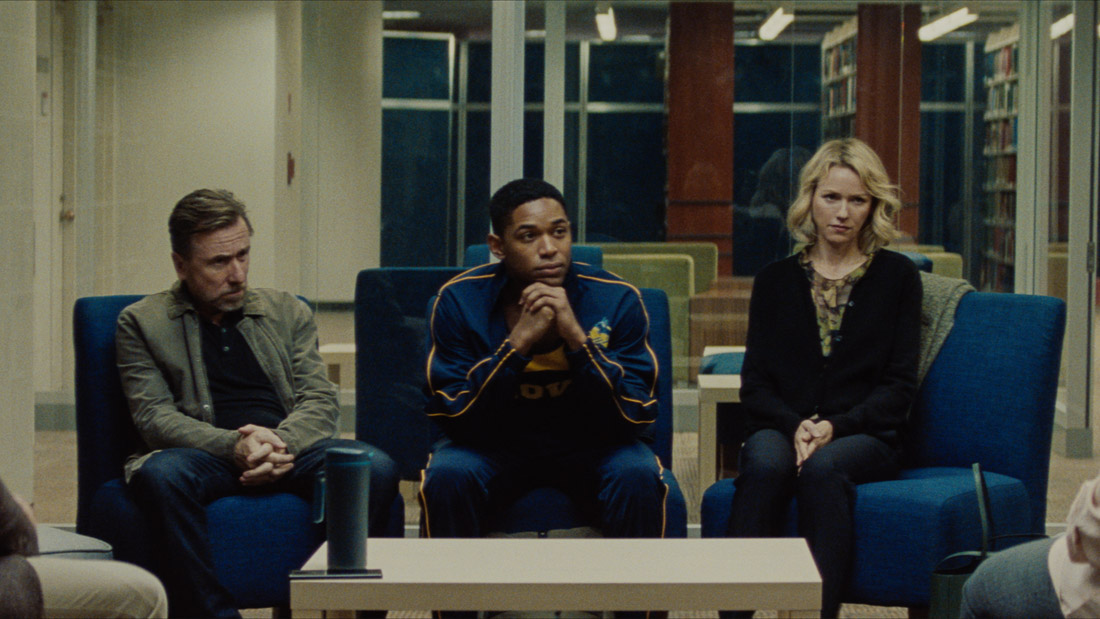
Star of the debate team, straight A student, soon to be high school valedictorian: from his handsome looks and stellar CV, Luce (Kelvin Harrison Jr.) is the shining example of the all-American teenager—minus, of course, his history as a child adopted from war-torn Eritrea. As a name, Luce means “light” in Latin, the idea being Luce, a now-beaming youth in the Arlington, Va., area, was removed from unimaginable darkness. But there’s another spin on the allegory here that’s just as meaningful: when people are placed into boxes—stereotypes, to be clear—only so much light can filter in and out of them. – Jake H. (full review)
Where to Stream: Amazon, iTunes, Google
Marriage Story (Noah Baumbach)

As an elevator pitch: it’s Kramer vs. Kramer for the 21st century, with Scarlett Johansson and Adam Driver–both in career-best form–in the Streep and Hoffman roles, respectively. Nicole (Johansson) and Charlie (Driver) are partners on the verge of a break-up and parents to young Henry (Azhy Robertson), their only child. Charlie, a soon-to-be recipient of the MacArthur grant, is a playwright on the cusp of real fame, and the head of a successful theater group that is about to make the jump to Broadway. Nicole is a Los Angeles native who once starred in a frat house comedy but left the Hollywood path in order to act in Charlie’s plays. You might spot where the tensions eventually lie. – Rory O. (full review)
Where to Stream: Netflix
Midsommar (Ari Aster)
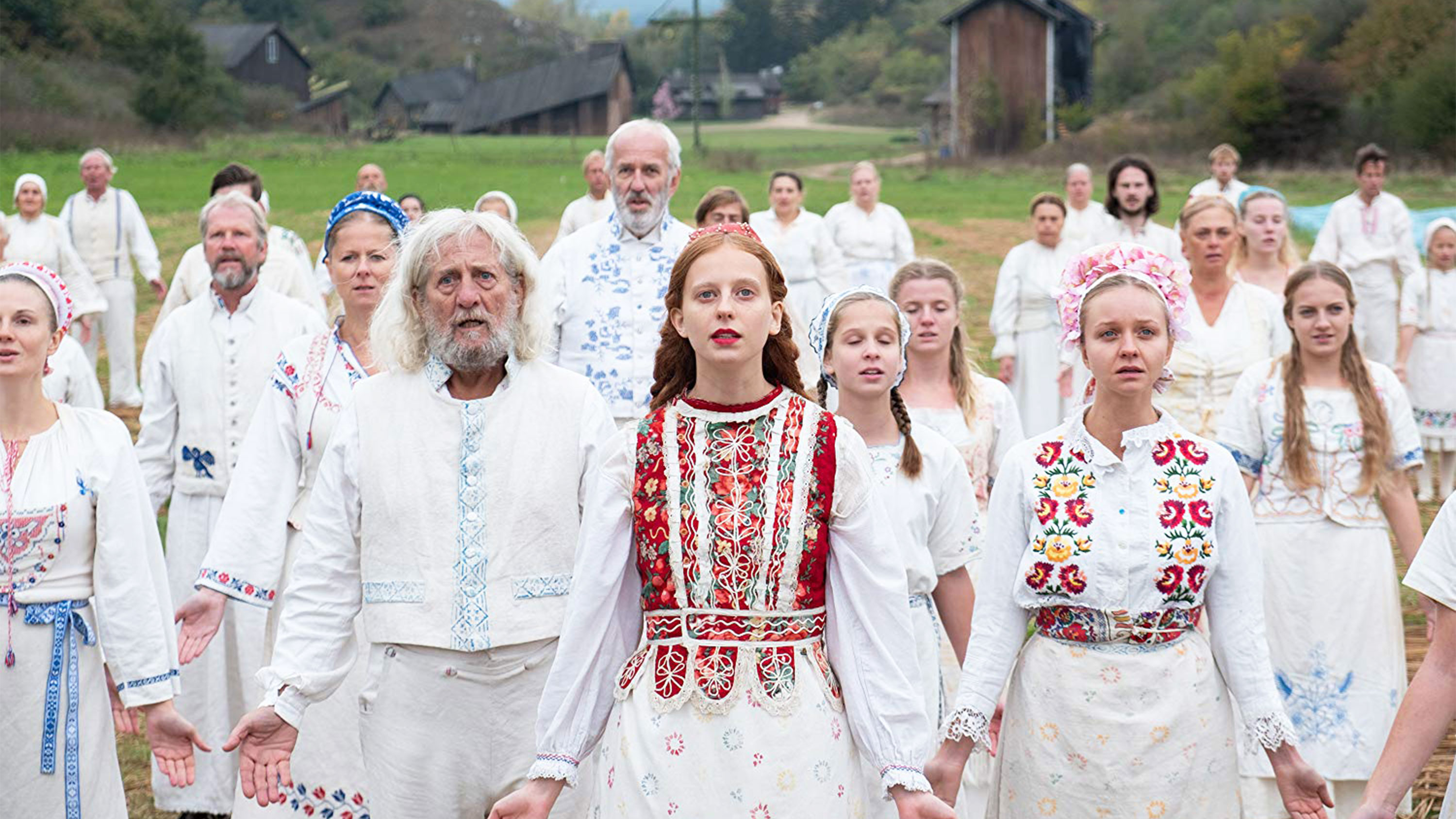
Ari Aster wants you to know you’re screwed–that is, if you’re on the wrong side of a deal with demons or deities. In the wake of last year’s wickedly captivating Hereditary, Aster’s whimsical daytime terror Midsommar is seemingly poised as the lamb being led to the sacrificial slaughter of the Sophomore Slump. Lo! Via divine intervention, or more likely Aster’s sharp grasp on the genre, Midsommar basks you in sunlight and dread to present something far more fun to unpack than its predecessor. The comparison holds weight not just because Midsommar deals with the same playful takes on Pagan-infused scare tactics that Hereditary does, but because notes of loss and helplessness run amok here. Aster’s tendencies toward despair create a sense of sobering inevitability while still managing to surprise with a bit of impish charm. – Conor O. (full review)
Where to Stream: Amazon, iTunes, Google
The Mustang (Laure de Clermont-Tonnerre)
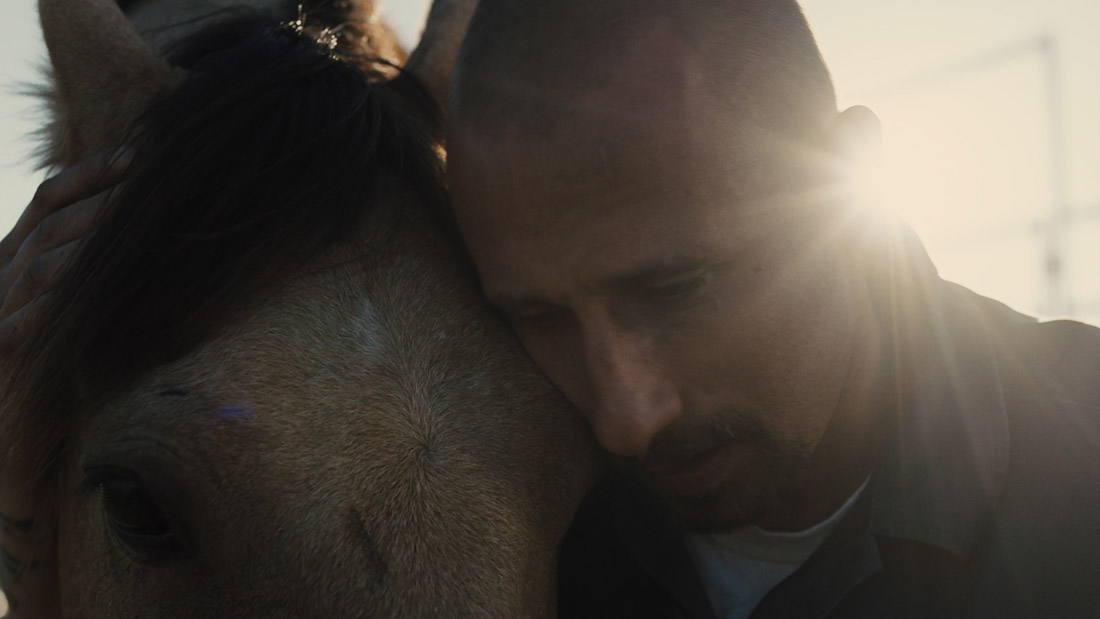
Can we talk about Matthias Schoenaerts? The Belgian actor made a splash on the festival circuit with Bullhead in 2011, leading to roles–both lead and supporting–in everything from Rust & Bone to Red Sparrow. Since his breakout though, he’s never matched the same attention despite a decade’s worth of good work. With Laure de Clermont-Tonnerre’s The Mustang, let’s hope that changes. The prison drama is a well-worn sub-genre, ripe with predictive beats and expected narrative turns. Those behind this picture are determined to subvert those expectations, and the attempt–though not fully realized–is much appreciated. – Dan M. (full review)
Where to Stream: Amazon, iTunes, Google
The Nightingale (Jennifer Kent)
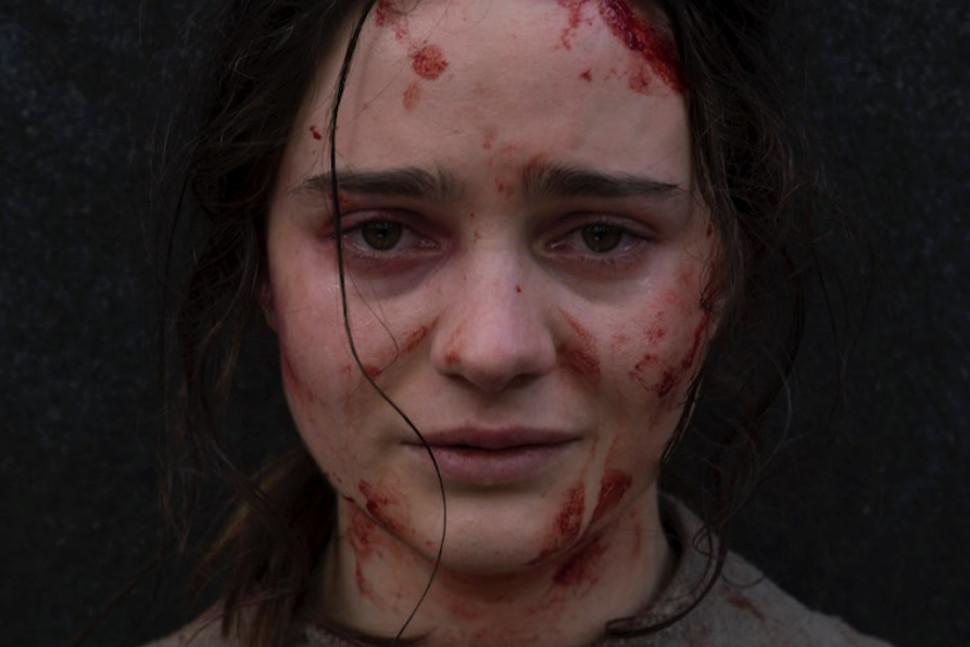
Jennifer Kent’s The Nightingale features some of the most atrocious on-screen violence in recent memory. It is a cauldron of blood, murders, and rapes so unflinching in vividness and brutality as to make it impossible to go through its 136 minutes without ever turning away from the screen, let alone to come out of it untouched. But it is also, in a way that’s indissolubly bound to role that violence plays in Kent’s work, and to the depiction she offers of it, one of the most memorable works in its genre – a parable that never turns violence into a spectacle, but is resolutely committed to expose the poisonous double prism of racism and sexism it feeds upon. – Leonardo G. (full review)
Where to Stream: Hulu, Amazon, iTunes, Google
Non-Fiction (Olivier Assayas)

Who needs a middle man’s subjectivity when you have algorithms predicting what people will like? Critics don’t matter much in Olivier Assayas’ talkative Non-Fiction, but they are not the only supposedly anachronistic relic to be thrown out of the window in this gentle and profoundly compassionate human comedy that draws from the ever-widening rift between old and new trends in the publishing industry to conjure up a tale of societal changes and those caught in between them. – Leonardo G. (full review)
Where to Stream: Hulu, Amazon, iTunes, Google
Once Upon a Time… in Hollywood (Quentin Tarantino)
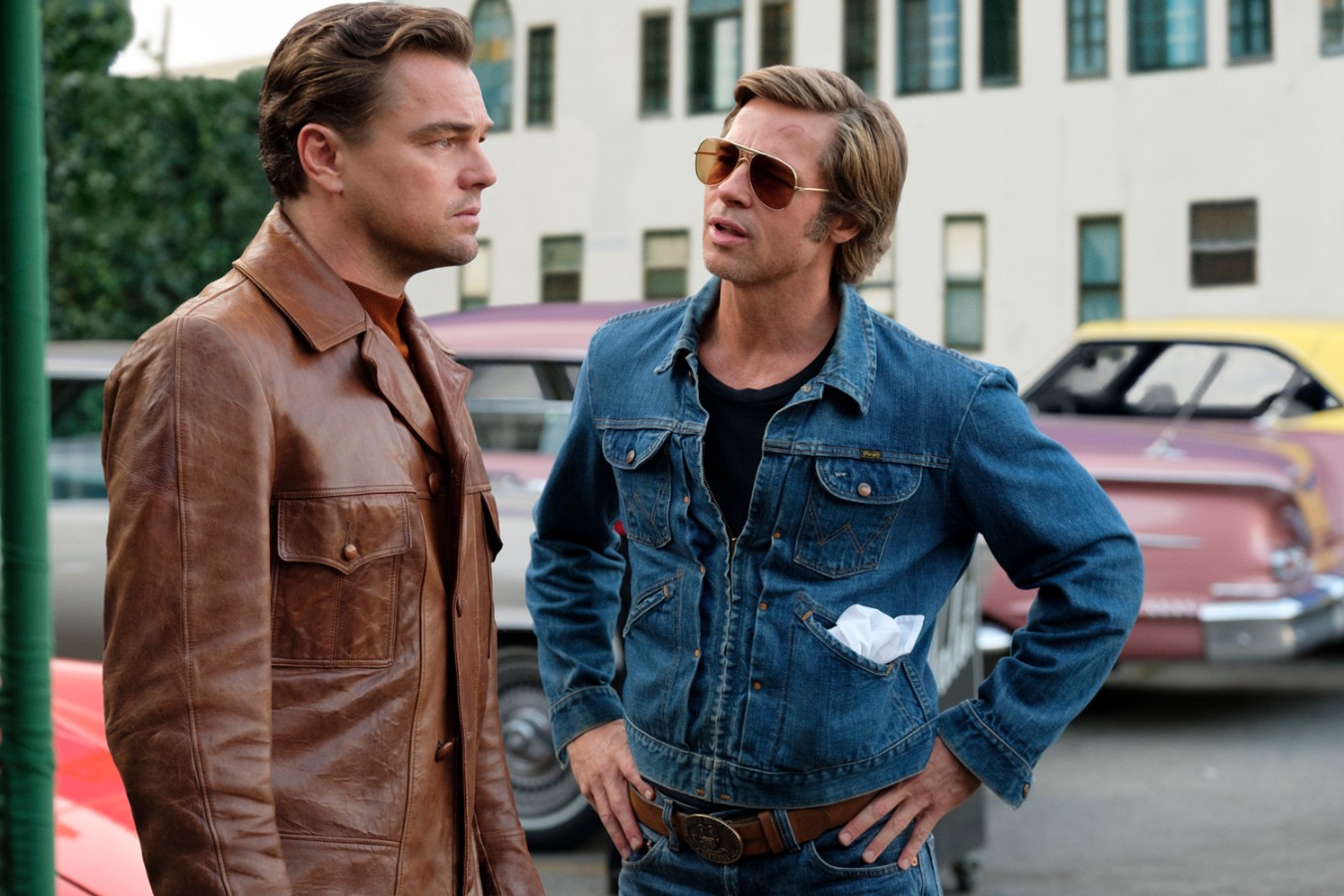
Quentin Tarantino returns in a haze of cigarettes, cocktails, razzle-dazzle, and psychedelic rock with Once Upon a Time… In Hollywood, a jarring concoction of ravishing 1960s fetishization and sliding doors “what if” moments that might just be his strangest film yet. It is certainly the director’s most patient, an uncharacteristic slow-burn that asks you to wait for it, jussst wait for it as it leads towards a fateful night in Hollywood folklore. The peculiarity of that pacing is notable and we’ll have to see if this cut–which was added to the Cannes lineup late on, supposedly as the director edited up until the last minute–will be the same that lands in theaters at the end of July. – Rory O. (full review)
Where to Stream: Amazon, iTunes, Google
One Child Nation ( Nanfu Wang and Lynn Zhang)

Chinese-American expat Nanfu Wang and Lynn Zhang’s sobering new documentary, simply titled One Child Nation, largely eschews the kind of abstract, “objective” historical and political analysis one would expect to find in, say, a CNN production. (Amazon Studios, the film’s distributor, is evidently unconcerned with provoking the ire of state-backed Chinese investors.) No “expert” talking heads rattle off statistics or theories or digestible factoids, and in fact the particular “how”s and “why”s of the one-child policy’s design and implementation are only broadly outlined through archival news clips and Wang’s expository narration. Instead, leveraging her proximity to the subject in ways few Western-born filmmakers could easily replicate, Wang–herself a product of the first one-child generation–places personal narrative front and center, starting with a visit to her rural hometown and spiraling out to produce a deeply personal snapshot of social engineering through the eyes of those predominantly working-class people most affected by it. – Eli F. (full review)
Where to Stream: Amazon Prime
Peterloo (Mike Leigh)
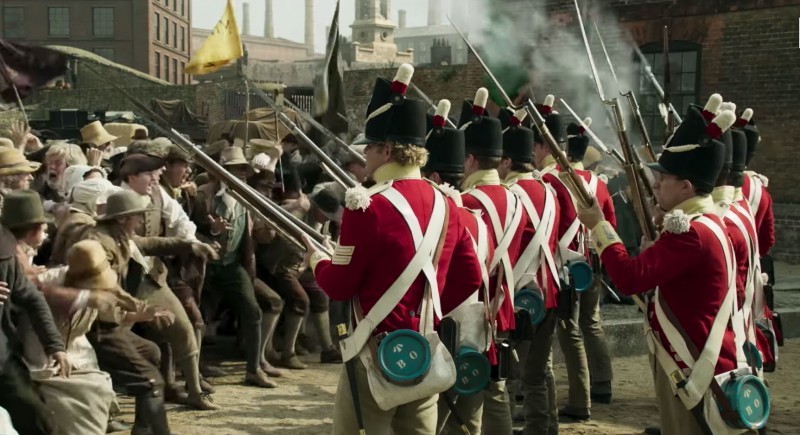
It’s not that Peterloo looks bad, necessarily, but the digital photography and stagy theatrical acting give off the air of a prestige educational TV drama. Nevertheless, it is certainly a film worth seeing, maybe even one people ought to see. As historically detailed as it is demanding, Peterloo tells the story of the St Peter’s field massacre–and all the soured good intentions and abuses of power that lead to it–during which 15 civilians were killed and hundreds injured when cavalry charged into a peaceful rally for parliamentary representation reform (or the vote, if you will). – Rory O. (full review)
Where to Stream: Amazon Prime
Relaxer (Joel Potrykus)
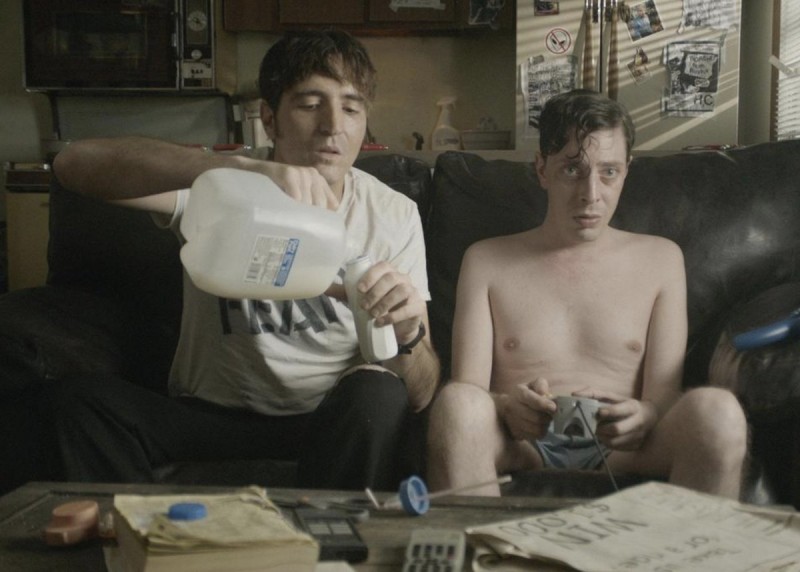
While many indie filmmakers like Andrew Bujalski started making films in apartments with their friends and scaled up to larger projects, Michigan-based madman Joel Potrykus has gleefully and unapologetically scaled down as his career has progressed. His fourth outing, Relaxer, barely even takes place in an apartment, but rather in the corner of a living room where Abbie (Joshua Burge) is stuck on a couch for nearly six months. While staying there, his cruel (or tough love) brother Cam, (David Dastmalchian), gives him a series of challenges. For the first one, he needs to drink a gallon of curdled milk out of nine baby bottles. Under the watchful eye of a Sony handicam, he’s not permitted to leave the couch under any circumstances until he’s finished. – John F. (full review)
Where to Stream: Amazon, iTunes, Google
The Report (Scott Z. Burns)
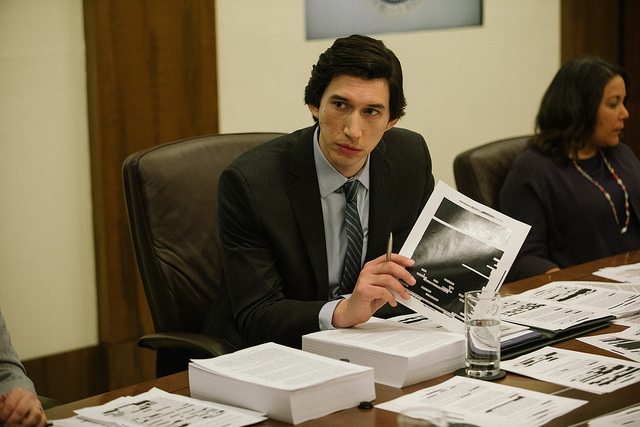
With it now being over a decade since the Bush-Cheney era, our perspective on the recent history is greater, which means it is time for filmmakers to have a stronger focus on mining the territory of post-9/11 political debacles. While Adam McKay’s Vice divided in its useful insight (or lack thereof), Scott Z. Burns takes a strictly procedural route in the thrilling, sharply written The Report. A student of the Steven Soderbergh school of filmmaking, it has the propulsive slickness of that director’s best films, without ever feeling derivative. – Jordan R. (full review)
Where to Stream: Amazon Prime
Rolling Thunder Revue: A Bob Dylan Story by Martin Scorsese

Martin Scorsese has had a long, fruitful partnership with rock ’n’ roll as muse, subject, and accompaniment, and one thing at which he’s uniquely skilled is drawing out the playfully antagonistic relationship between performer and audience. Though 2005’s No Direction Home offered an exhaustive, four-hour look at a sliver of Bob Dylan’s career, it felt almost too civil–absent the combative spirit that has made Dylan such a prophetic and transmuting figure. His latest attempt, Rolling Thunder Revue: A Bob Dylan Story–a remastered chronicle of the nearly 60-date tour that took place from 1975-1976–is as indebted to Dylan in form as content. A grandiose lark at least ten years in the making, its opening as a stirring Americana collage belies its later, consciously scattered direction. This is a portrayal of Dylan at his most unadulterated and prickly–a desolate genius who’s still almost always full of it. – Michael S. (full review)
Where to Stream: Netflix
The Souvenir (Joanna Hogg)
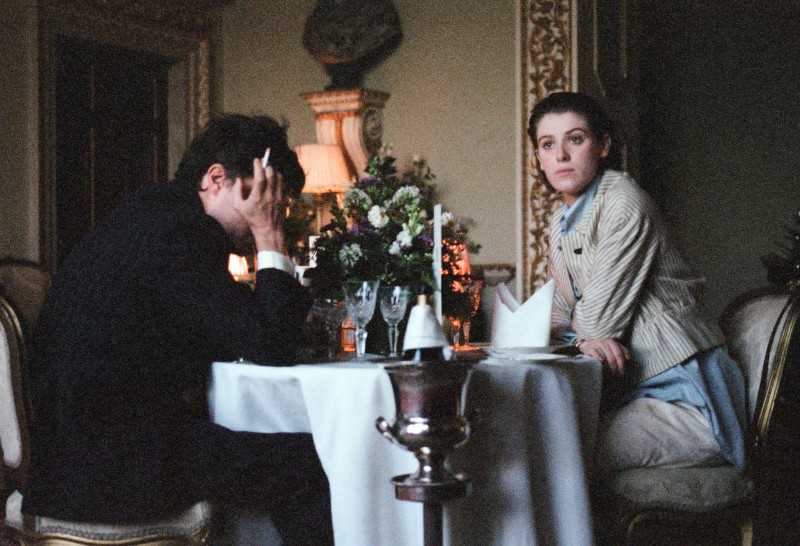
The Souvenir melds two well-trodden subgenres and through Joanna Hogg’s refreshingly unique vision makes each feel entirely original. Her much-anticipated return after 2013’s Exhibition tells both a painful addiction story and a behind-the-scenes look at film school struggles as we follow Julie (a beautiful debut performance by Honor Swinton Byrne). The daughter of Tilda Swinton (who also briefly turns up), Swinton Byrne is in every scene, and steals them all. Akin to the revelatory introduction to Tom Hiddleston in Hogg’s first two films, Unrelated and Archipelago, she is the lifeblood of The Souvenir, which follows doomed lovers in a story that is conveyed with feels mined from achingly personal memories. – Jordan R. (full review)
Where to Stream: Amazon Prime, iTunes, Google
Too Late to Die Young (Dominga Sotomayor)

Halfway through Dominga Sotomayor’s movingly tender coming-of-age tale Too Late to Die Young (Tarde Para Morir Joven), my mind jolted back to a movie I saw and instantly fell for a couple of months prior, Carla Simón’s Summer 1993. It took me a while to figure out why. Summer 1993 is set in early 1990s Catalunya; Sotomayor’s takes place at the decade’s outset, but on the opposite side of the world: a commune nestled in the arid cordillera towering above Chile’s capital, Santiago. Yet at some fundamental level, the two films speak the same language. Underlying Sotomayor’s follow-up to her 2012 feature debut and Rotterdam Tiger Award winner Thursday Till Sunday is a deep-seated nostalgia – the same longing for a long-gone era that rang achingly true in Summer 1993. – Leonardo G. (full review)
Where to Stream: Amazon, iTunes
Transit (Christian Petzold)

Migration isn’t just a hot-button issue in the political arena. It’s a hot topic in your local arthouse theater, too. At Berlin’s film festival, the subject is everywhere–from Wolfgang Fischer’s Styx and documentaries like Central Airport THF–perhaps natural for the capital of a country now home to more than a million recent asylum-seekers from the middle east and Africa. Local boy Christian Petzold’s audacious retelling of Anna Seghers’s World War II-set novel about refugees escaping Nazi-controlled France is a strange, beguiling creation that will be hard to beat in the competition line-up, and ranks as a rare period piece that utterly gets under the skin of contemporary concerns. It’s an engrossing, uncanny and somewhat disturbing film, and completes something of a trio of historical melodramas after Barbara and his worldwide hit Phoenix, but develops the themes of those in an adventurous, if oblique, way. – Ed F. (full review)
Where to Stream: Amazon Prime, iTunes, Google
Under the Silver Lake (David Robert Mitchell)
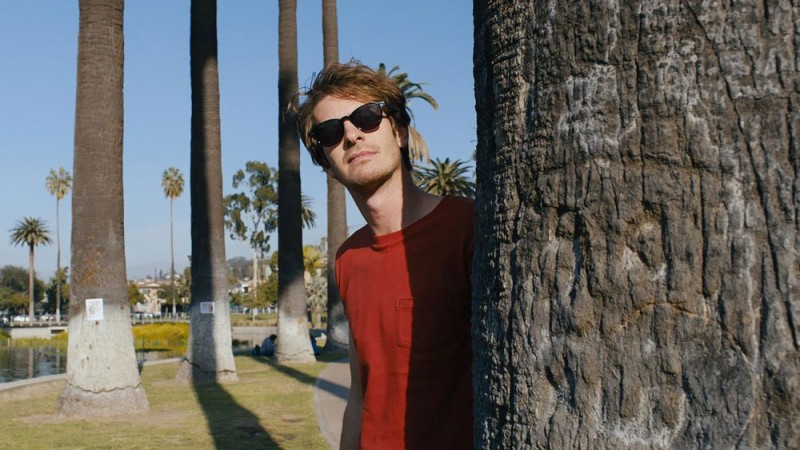
David Robert Mitchell is a nostalgic. His debut feature, The Myth of the American Sleepover, paid tribute to such teenage dramas as American Graffiti and the work of John Hughes. Its follow-up, the terrific It Follows, ranks amongst the smartest and most effective specimens in John Carpenter’s vast and variegated suburban horror legacy. Mitchell has now tried his hand at an L.A. noir with Under the Silver Lake, which owes as big a debt to The Long Goodbye, Mulholland Drive, and Inherent Vice (to mention but three of the most conspicuous referents) as it does Thomas Pynchon’s labyrinthine, paranoia-laden narratives. – Giovanni M.C. (full review)
Where to Stream: Amazon Prime, iTunes, Google
Us (Jordan Peele)
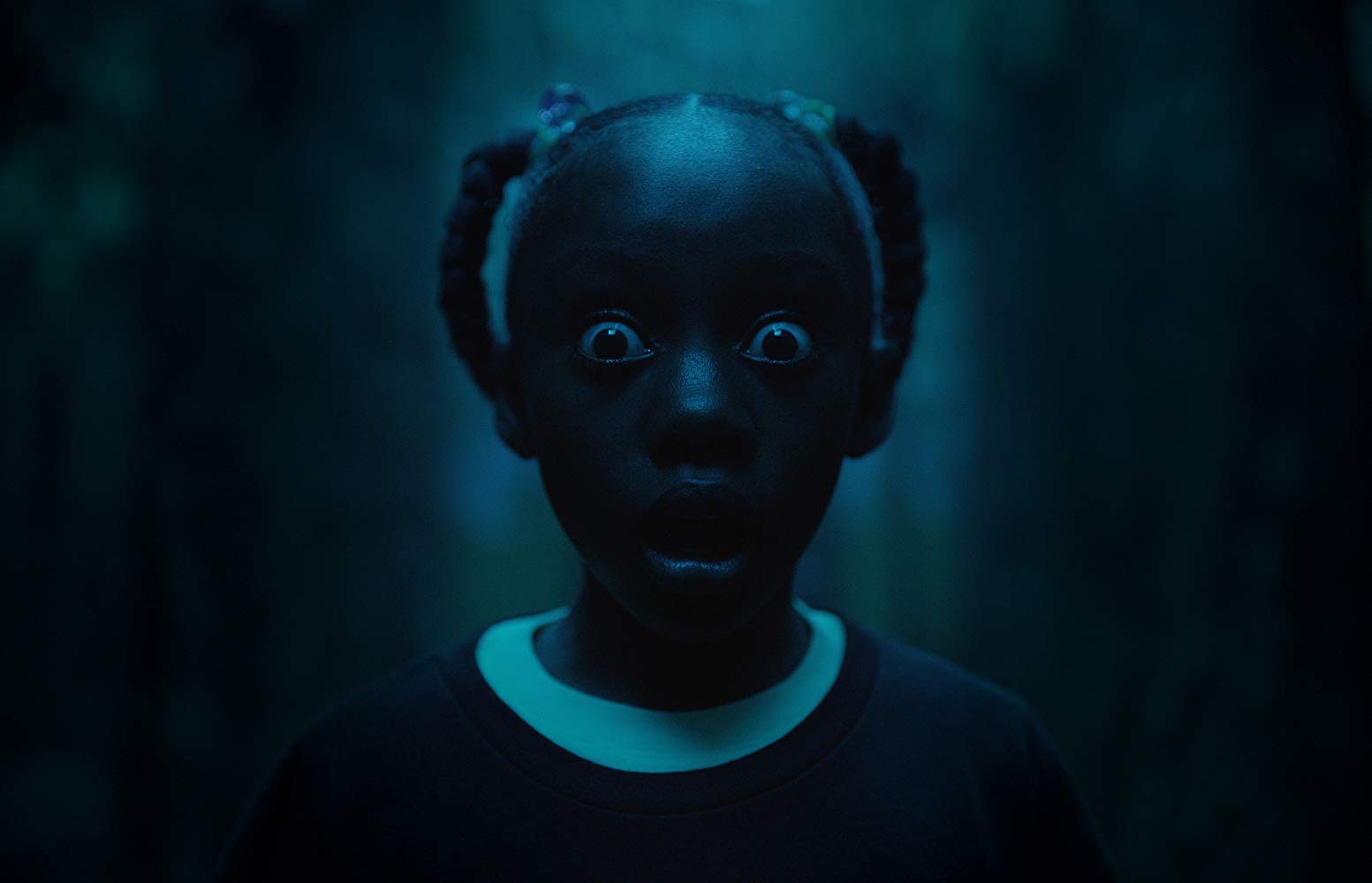
When something is more than the sum of its parts, that is a form of achievement. Usually, if something is no more than the sum of its parts, that is considered a bad thing; a failure of some kind. Among many the questions that Us may raise in an audience, the foremost might be this: is being no more than the sum of its parts a bad thing if so many of those parts are really, really fun? – Brian R. (full review)
Where to Stream: HBO, Amazon, iTunes, Google
The Wild Pear Tree (Nuri Bilge Ceylan)
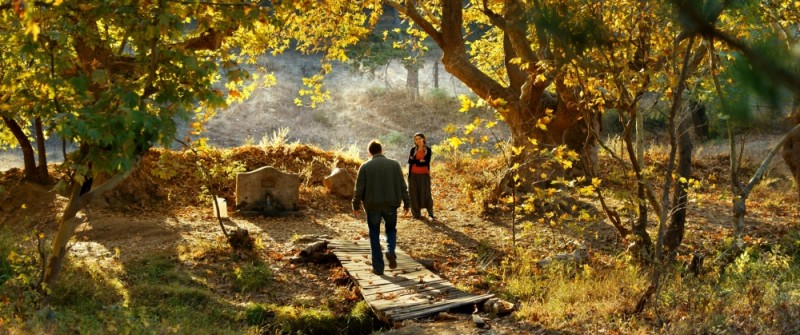
As with much of Ceylan’s work, the majority of The Wild Pear Tree is heavy on dialogue — not in the meandering Richard Linklater sense, but in a more impenetrable, academic way. It is essentially cinema as conversation, and these conversations come in dense chunks, as when Sinan meets a popular local writer and exasperates and antagonizes him with questions about his work or, later (in what is the film’s most exhausting sequence), as Sinan and two old friends walk around eating apples and talking about faith. A lot of the time, this feels like self-reflection. Sinan is constantly attempting to get his book funded by local officials, only to be continuously denied because his work, as they see it, has little value for tourists. Ceylan is Turkey’s most celebrated living filmmaker; we can only imagine similar pressures have been placed on him. – Rory O. (full review)
Where to Stream: iTunes
Also Streaming
Amazon
3 From Hell
Age Out
Be Natural: The Untold Story of Alice Guy-Blaché
The Chambermaid
Combat Obscura
The Dead Don’t Die
Diamantino
Giant Little Ones
Greener Grass
Hustlers
Love, Antosha
Maiden
Mister America
Monos
The Peanut Butter Falcon
Queen of Hearts
Rafiki
Sunset
Sword of Trust
The Third Wife
Where’d You Go, Bernadette
Wild Rose
Amazon Prime
HBO
Diego Maradona
Glass
Leaving Neverland
Share
Hulu
Booksmart
Hail, Satan?
Missing Link
Wild Rose
Woman at War
Netflix
All Good
Burning Cane
Homecoming
Joy
A Land Imagined
The Laundromat
Shadow
Sorry Angel
The Two Popes
Shudder
Knife + Heart
One Cut of the Dead
Tigers Are Not Afraid
Have any suggestions? Comment below or tweet @TheFilmStage to submit titles for consideration.

